Day 1 :
Keynote Forum
Ozlem Tokusoglu
Celal Bayar University, Turkey
Keynote: Nutrition Concept in Current and Future: Innovative Foods, Relation of Anticancer Foods and Anticancer Components in Foods
Time : 09:00 AM

Biography:
Özlem TokuÅŸoÄŸlu (Associate Professor Dr.) was born in Izmir, Turkey, completed her bachelor’s (1992) and master’s (1996) at Ege University in the Department of Chemistry and also completed her PhD from Ege University in the Department of Food Engineering (2001), Izmir, Turkey. She worked as a researcher at Ege University from 1993 to 2001. She professionally officiated at the Food Science and Nutrition Department at the University of Florida-Gainesville, Florida, USA as a research associate during 1999–2000. Dr.TokuÅŸoÄŸlu has worked on the faculty staff as an assistant professor at Celal Bayar University, Manisa during 2002–2007, Turkey. TokuÅŸoÄŸlu, is currently also working as associate professor, faculty member in the Department of Food Engineering of Celal Bayar University from 2007 to now. She’ll be full professor at December TokuÅŸoÄŸlu was a visiting professor at the Food Science and Nutrition Department at the University of Florida, Gainesville, Florida, USA during 1999–2000 and at the School of Food Science, Washington State University, Pullman, in the State of Washington, USA during April–May 2010. Her study focusses on food quality control, food chemistry, food safety and toxicology, shelf-life of foods and innovative food processing technologies on foods, beverages, and functional products.
Abstract:
Nutrition covers a extensive spectrum of disciplines as personal health, population health, and planetary and the researches on nutritional health concerned. New trends in nutritional science are manufacturing technology of qualified innovative processed foods and healthy foods including anticancer compounds. By 2050, a global population of 9 billion will demand 70% more food than is consumed today. Feeding this expanded population nutritiously and sustainably will require substantial improvements to the global food system; one that provides livelihoods for farmers as well as nutritious healthy products for consumers. This requires a strategic, long-term focus coupled with new ways of working with other stakeholders along the value chain. The food sector and regulatory agencies are performing innovative technologies to provide safe and stable foods for public health. Nonthermal Technologies including high hydrostatic pressure (HHP), pulse electrical fields (PEF) and ultrasound (US) successfully decontaminate, pasteurize, and potentially pursue commercial sterilization of selected foods while retaining fresh-like quality and excellent nutrient retention; and these technologies are preferred instead of classical preservation technologies; bioactives has been enhanced. Epidemiological studies have suggested positive associations between the consumption of phenolic-rich foods or beverages and the prevention of diseases, especially cancer types. The commercial development of plants as sources of antioxidants to enhance health and food preservation is of recent interest. Functional foods are those that go beyond merely providing nutrients; they actively help prevent diseases for those at high risk, such as cancer, diabetes or heart disease. When products based on functional and super foods could play a key role in the fight against disease including cancer, it can be said that these are ‘’anticancer foods’’and has antiproliferative and apoptosis effects. Main focus is food itself, not a single bioactive compound from its structure. It must be known that the synergistic effects of the many bioactive components in foods has been gained beneficial property. In this point, phenolic phytochemicals in foods and food is rich in phytochemicals concept is important. Also innovative technologies can be effective on foods are rich in phytochemicals
Keynote Forum
Tezer Kutluk
President, Union for International Cancer Control (UICC)
Keynote: Nutrition and Cancer: A Retrospect
Time : 09:30 AM
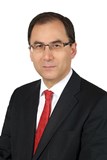
Biography:
Kutluk served as CEO of Hacettepe University Hospitals from 2008 to 2011. Graduated from Hacettepe University Medical School Ankara-Turkey in third rank among graduates in 1981. Postdoctoral fellow and Fulbright scholar at MD Anderson Cancer Center USA (1992-94). Member of SIOP, ASCO, AACR, AAP, International Children’s Center. He had served as a leading healthcare executive at Hacettepe University; Vice-Director of Children’s Hospital (1997-1998), the Director of Oncology Hospital (1999-2007), Director of Children’s Hospital (2000-2007) and President of Institute of Child Health (2000-2004), President of Institute of Oncology (2004-2008), Board Member of Institute for Health Sciences (2000-2007), Member of Senate (2000-2011) & CEO of Hacettepe University Hospitals (2008-2011). 

He also has a long term experience on NGO management; “UICC-International Union for Cancer Control - Board Member – Geneva - Switzerland (2008 - 2012)” “President of Turkish Association for Cancer Research and Control, Ankara-Turkey (2004-2012)”, “President of European Cancer Leagues-ECL – Brussels-Belgium (2009-2011)”, “President of Turkish National Pediatric Society (2009-2012)”, “President of Turkish Pediatric Oncology Group (2011-2013)”. His experience on healthcare management during the last 15 years brought him to the top of the Hacettepe University Hospitals as CEO between 2008-2011. He has been working at Department of Pediatric Oncology, Hacettepe University at the moment. He is named as honorary FAAP by American Academy of Pediatrics in May 2014. He is the President of “UICC, Union for International Cancer Control” for the term of 2014-2016.
Abstract:
Based on report by IARC, cancer became the number one cause of the mortality at global level by causing 7.87 million deaths in 2011. Each year more than 14 million new cancer diagnosis and 8 million deaths due do cancer are expected. The implementation of strategies for prevention, early detection and treatment could save 3-4 million premature deaths due to cancer each year. Cancer is one of the major global non-communicable diseases. All together cancer, cardiovascular diseases, diabetes, chronic respiratory diseases, mental & neurologic disorders kills about 38 million people every year. This makes 68% of all deaths worldwide. Three quarters of deaths occur in LMICs. The current situation requires immediate actions to save the lives of millions and prevent the disabilities of millions. UICC released the first version of World Cancer Declaration in 2008. It was a call to the global oncology community stating in which direction we should move. UN High-Level Summit adopted the UN Political Declaration on NCDs in 2011, and then 9 global targets with a focus to 25 by 25 NCD mortality target and Global NCD Action Plan for 2013-2020 were brought by WHO. We all were wondering what would be the next after millennium development goals. Then sustainable development goals for 2030 agenda was accepted by UN in September 2015. Health and NCD is already on the agenda at high level. Global community is more ready to implement the political decisions than ever, however, it is critical to implement the actions at national and regional level. The inclusion of an NCD reduction target in the United Nations’ new Sustainable Development Goals opens a new era of international development that the cancer and broader health communities have a unique opportunity to grasp. We urgently need to build new alliances, develop groundbreaking partnerships and overcome the barriers to optimal international collaboration.rnrnThe common key risk factors for major non-communicable diseases are tobacoo use, unhealthy diet, physical inactivity and harmful use of alcohol. The content of the diet, preparation of the foods, contaminants have got a lot of interest in the etiology and prevention of cancer. There is a relationship between excess body fat and cancers including esophagus, colon, pancreas, endometrium, kidney and breast cancer. Physical activity also reduces the risk of some cancer types including breast and colorectal cancers by weight control. Nutrition is a complex issue to fully understand its role in etiology, prevention and during the treatment of cancer. Meat consumption, intake of vegetables, fruits and phytochemicals are also the other major areas for research on diet and cancer relationship. Body weight control through dietary interventions is a part of the cancer prevention. There are evidences that obesity increases the risk of developing some cancers and this gives an opportunity of intervention cancer prevention. It is very obvious that research on cancer & nutrition will continue a focus of interests and the implementation strategies will be on the global agenda.rn

Biography:
Gary Stoner is Professor of Medicine at the Medical College of Wisconsin (MCW) Division of Hematology and Oncology, specializing in the fields of chemical carcinogenesis and cancer chemoprevention. He serves as Director of the Molecular Carcinogenesis and Chemoprevention Program in the newly developing Cancer Center. Dr. Stoner received his PhD in microbiology from the University of Michigan in 1970 and became involved in cancer research as a post-doctoral fellow and research scientist at the University of California-San Diego (UCSD). While at UCSD, his research was focused on the development of a mouse model of lung cancer for the identification of environmental carcinogens and for mechanistic studies of lung carcinogenesis. He then joined the Laboratory of Human Carcinogenesis at the National Cancer Institute where he conducted research on the metabolism of tobacco carcinogens in human lung tissues and developed human lung cell culture systems for investigations of carcinogen/oncogene-induced cell transformation. He became involved in chemoprevention research in the early 1980’s while at the Medical College of Ohio, initially investigating the chemopreventive potential of naturally-occurring ellagitannins and isothiocyanates in the rodent lung and esophagus. As an extension of research with ellagic acid, Dr. Stoner’s laboratory developed a “food-based” approach to the prevention of esophagus and colon cancers in rodents and in humans using freeze-dried black raspberries. His research is documented in more than 350 peer-reviewed publications and book chapters, and he has edited several books.
Abstract:
Keynote Forum
Hilal Elver
Special Rapporteur in UN Human Rights Council, USA
Keynote: 4
Time : 10.30
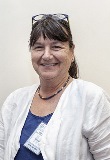
Biography:
Hilal Elver is a Research Professor and co-director of the Project on Global Climate Change, Human Security, and Democracy housed at the Orfalea Center at the UCSB. She is currently serving as the UN Special Rapporteur on the Right to Food with the Office of the High Commissioner on Human Rights. She has a law degree and a Ph.D. from the University of Ankara Faculty of Law, and SJD (Doctoral degree of juridical Science) degree from UCLA School of Law. She started her teaching career in 1985 at the University of Ankara Faculty of Law, and during this period she was also appointed by the Turkish government as the founding legal advisor of the Ministry of Environment, and the General Director of Women’s Status in the Office of the Prime Minister. In 1994, she was appointed by the United Nations Environment Program to the UNEP Chair in Environmental Diplomacy at the Mediterranean Academy of Diplomatic Studies in Malta. In 1993 she was a Fulbright Scholar at the University of Michigan Law School in Arbor, and 1996-1998 she was a visiting fellow at the Center of International Studies at Princeton University. Since 1998 she has been teaching comparative law, international human rights law, and international environmental law at various universities in the U.S and Europe. Currently, she is one of the members of the Turkish negotiation team at the UN Framework Convention on Climate Change.
Abstract:

Biography:
Charles Brennan is a Professor of Food Science at Lincoln University, New Zealand where he is a member of the Faculty of Agriculture and Life Sciences. Brennan's research interests lie in the interface between food science and human nutrition with particular interest in how bio-active ingredients and processing manipulate the nutritional quality of foods in particular the role of plant dietary fibre in manipulating the glycaemic response. Brennan is a graduate of London University, Wye College (BSc in Applied Plant Science) and King's College London (PhD in Food Science and Nutrition). During his career he has also worked at Durham University (UK), Plymouth University (UK) and Massey University (NZ). He currently serves as Editor in chief for the journal International Journal of Molecular Sciences,[2] and International Journal of Food Science & Technology[3] and in the Editorial Board of the Journal of Bioactive Carbohydrates and Dietary Fibre
Abstract:
- Nutritional Value and Quality of Foods
Nutritional therapy and treatment
Clinical Nutrition
Sports Nutrition
Public Health Nutrition
Session Introduction
Takashi Takeuchi
Tottori University, Japan
Title: Multifunction of milk-derived iron binding protein (lactoferrin) for the central nervous system
Biography:
Abstract:
Theertham Pradyumna Rao
Taiyo International Inc, Japan
Title: Blame it on diet and nutrition for present and future you
Biography:
Abstract:
Osama O Ibrahim
Bio Innovation LLC, USA
Title: Sugar Alcohols: Chemical Structures, Manufacturing, Properties And Applications
Time : 11:35-12:05

Biography:
Osama O Ibrahim is a highly-experienced Principle Research Scientist with particular expertise in the fields of biochemistry, microbiology, molecular biology, and bioprocessing for both pharmaceutical and food ingredients. He was External Research Liaison for Kraft Foods with Universities for research projects related to bioprocessing and molecular biology. In the 2005, he accepted an early retirement offer from Kraft Foods and formed his own biotechnology company (Bio Innovation) providing technical and marketing consultation for new start-up biotechnology and food companies. He holds three bioprocessing patents and received his PhD in basic medical science (Microbiology, Immunology and Molecular biology) from New York Medical College. He is a Member of American Chemical Society, American Society of Microbiology, and Society of Industrial Microbiology since 1979.
Abstract:
Sugar alcohols (Polyols), are currently used as bulk sweeteners in reduced calorie foods. They are part of human diet for thousands of years and are present in fruits such as pears, melons, and grapes as well as mushrooms and fermentation foods (wine, soy sauce and cheese). The most common sugar alcohols that are available in the market are sorbitol, mannitol, xylitol, erythritol, isomalt, lactitol, maltitol, and hydrogenated starch hydrolysates (HSH). Sugar alcohols are believed to be good sugar substitutes for people with diabetes plus they do not contribute to dental caries (cavities). Their caloric value are generally half that of sugar sucrose. Plus they have a very low glycemic index, which are great for controlling blood sugar levels. Chemical structures of sugar alcohols are a hybrid between sugar molecule and an alcohol molecule. However they are neither a sugar nor an alcohol
Bruce P Burnett
The Nutrition and Medical Food Coalition, USA
Title: Update and Challenges to the Medical Food Category
Time : 12:05-12:35

Biography:
Bruce Burnett is an expert in the field of nutritional products development. He is Vice President of Compliance, Regulatory, & Medical Affairs at Entera Health, Inc. Dr. Burnett received his BS degrees in Biology and Chemistry from Eastern Washington University and his Master’s and PhD in biochemistry and biophysics from Yale University. He also received several NIH and SBIR grants, served on the ad hoc study section for review of SBIR awards and acts as a reviewer for several journals around the world. Dr. Burnett has 50 peer-reviewed publications, 2 book chapters, and over 30 peer-reviewed published abstracts
Abstract:
Update and Challenges to the Medical Food Category: Medical foods (MFs) existed for five decades as FDA-approved drugs in the United States until 1988 when the Orphan Drug Act was passed establishing them separate from drugs. In the early 1990s, MFs were codified under the Nutrition Labeling and Eduation Act, but exempted from common nutrient labeling. One regulation was passed [21 CFR101.9(j)(8)], which required MFs to be: specially formulated (purified); for patients with chronic medical needs; intended to provide nutritional support for unique nutrient needs in the managment of a specific disease or condition; and intended to be administered under medical supervision in patients receiving active, ongoing care to assure instructions on use. In 1996, the FDA proposed regulations which further defined the MF category, but withdrew these without comment in 2003. Since that time, the FDA has written frequently asked question guidance on MFs which it finalized in May 2016. This guidance did nothing to clarify the definition of MFs, the distribution channel for MFs other than restating medical supervision, and provided no guidance on clinical substantiation. The drug division at FDA also issued guidance to institutional review boards in 2013 requiring that MF trials be performed under an investigational new drug application whereas guidance from the Orphan category exempts them from this requirement. The lack of FDA action on MFs has led to confusion amongst physicians, pharmacists and payers as well as restriction of patient access to these essential therapies. Industry is proposing best practice guidelines
Falah K Al-Ani
A’Sharqiyah University, Oman
Title: Consumption of raw animal milk as a source of human brucellosis in the Dhofar Governorate in the Sultanate of Oman
Time : 12:35-13:05

Biography:
Falah K Al-Ani is a Professor of Pathology in A'Sharqiyah University, Oman. He has received his Doctor of Philosophy in Pathology in 1985 from the Kansas State University, USA
Abstract:
Brucellosis is a zoonotic disease caused by Brucella species. It is a worldwide problem, with significant public health and economic implications. The causative agent, a Gram-negative, facultative, intercellular bacterial pathogen, can cause serious infections in people and animals. The main Brucella species found in people of Dhofar Governorate, Sultanate of Oman as well as in the Middle East is Brucella melitensis and to lesser extent B. abortus. This zoonosis is easily transmitted from animals to humans by milk and milk products. In Oman, the epidemiological evidence indicated that at least 90% of human Brucella infections can be attributed to direct contact with infected livestock and to the consumption of contaminated raw milk and raw milk products. The objective of the study is to examine the sero-epidemiology of brucellosis in human beings and domestic animals, to isolate the causative agent from patients and milk products and then to put plans and means in which this disease might be prevented and controlled. Published data on human brucellosis in Dhofar Governorate indicated infection rate of 100 to 375 patients per year. During the year 2015, the Department of Communicable Diseases Surveillance & Control at Dhofar Governorate reported 343 clinical human cases of brucellosis at 8 Provinces of Dhofar Governorate. Among the 343 people, 21.5% of the patients in the age group of 2-10 years old, 50.1% are in the age group of 11-30 years old, 25% are in the age group of 31-50 years old and 3.4% are in the age group of 51 years old and over. All with the clinical signs of brucellosis have been referred to the hospitals for treatment. In addition to that other patients who are receiving treatment in private medical centers are not accounted in the report. Serological testing of animals at Dhofar Governorate indicates an incidence of 21%, 15% and 11% of brucellosis in goats, sheep and camels respectively
Mirjana Menkovska
Ss. Cyril and Methodius University, Macedonia
Title: Food microbial contamination by toxigenic molds: Threat for human and animal health
Time : 13:45-14:15

Biography:
Mirjana Menkovska is full Professor at Department of Food Technology and Biotechnology at the Institute of Animal Science, Ss. Cyril and Methodius University in Skopje, Macedonia. She was graduated from the Faculty of Technology and Metallurgy in Skopje, completed MS degree in Instrumental Analysis in Chemistry and Technology at the same university and PhD degree in Food Technology at the University of Belgrade, Serbia. She was a Visiting Scientist for Cereal Research at GMRC in Manhattan, Kansas during the academic 1985-1986 at Cereal Research Institute in Detmold, Germany in 1997 and at other known research centers in Europe. She has published more than 150 papers in domestic and foreign scientific journals and participated in 90 scientific meetings in the country and abroad. She has also translated three scientific books and reviewed three scientific books from English into Macedonian language
Abstract:
Food can be contaminated by a range of microorganisms and their toxins causing food borne illnesses. Among them molds is one of the greater significance to human health producing mycotoxins as metabolic products. The most important group of mycotoxigenic molds belonging to Aspergillus and Penicillium species are aflatoxins (AFs) which are highly potent in the induction of acute and chronical toxicity in humans and in animals. Among them, aflatoxin B1 is carcinogenic to many organs in many species, exhibiting immunosuppressive effects. AFs can influence either alone or in combination with other mycotoxins. Very strong correlation exists between the daily dietary intake of aflatoxin B1 and the incidence of primary liver cancer in humans. Ochratoxin A and citrinin both affect kidney function. Molecular and biochemical mechanisms of action of acute toxicity and carcinogenicity induced by aflatoxin B1 will be discussed in this presentation, as well as the chemical structure of aflatoxins, their biochemical activation, detection, control and prevention
Josefina T Gonzales
Food and Nutrition Research Institute, Philippines
Title: Consumption Pattern For Fruit And Vegetables of Filipino Adolescents In Selected Public Schools In The City of Manila, Philippines
Time : 14:15-14:45
Biography:
Josefina T. Gonzales has completed her Diploma Course in Community Nutrition from the University of Indonesia and her masteral degree in Nutrition and Health from Wageningen University and Research Center, The Netherlands . She is a registered Nutritionist-Dietitian and currently occupying a permanent position as Science Research Specialist II of the Food and Nutrition Research Institute. She has been involved in the conduct of National Nutrition Surveys in the Philippines as a dietary researcher. She is actively involed in the conduct of nutrition and health related seminars and trainings as resource person
Abstract:
The study aimed to (1) determine perceptions regarding fruits and vegetables, (2) identify selected practices on fruit and vegetables consumption, (3) assess consumption of fruit and vegetables in terms of serving in grams per day and (4) identify factors affecting fruit and vegetable consumption. The study was conducted in seven ramdomly selected public schools and three public colleges in the city of Manila. Two hundred randomly selected students aged 12-16 and 17-20 years were personally interviewed using a structured questionnaire. A food frequency questionnaire was used to determine the past month’s fruit and vegetable consumption. Data were analysed using Statistical Package fpr the Social Sciences (SPSS). Descriptive statistics, like frequencies. means and percentages, ANOVA, T-test and simple correlation were used. Results showed that inadequate consumption of vegetable was prevalent among the study population but fruit intake was higher than the Philippine recommendation. Fruit and vegetable intakes varied with age and sex. Male adolescents consumed more vegetables compared to their female counterparts. Female adolescents consumed more fruits than their male counterpart. Generally, the adolescents had a good perception of fruits and vegetables. The study cocluded that Filipino adolescents are consuming substantially fewer servings of vegetables than the recommended daily allowances but fruit intake was higher than the recommended. The study advanced recommendations useful for promoting fruit and vegetable consumption among adolescents and for future studies focused on nutritional behaviour change related to fruit and vegetable consumption among adolescent
Theertham Pradyumna Rao
Taiyo International Inc, USA
Title: Inter-meal appetite, snacking and calorie control with guar fiber
Time : 14:45-15:15

Biography:
T.P.Rao has completed his PhD and postdoctoral studies at Nagoya University, Japan and a certificate course in International Food Laws and Regulations at Michigan State Univeirsity, USA. He is Asst General Manager at Taiyo Kagaku, Japan. He started his career at ICRSAT (International Crop Research Institute for Semi-Arid Tropics, India) and acquired extensive research, marketing and regulatory experience ranging form agriculture, nutrition to health. He has published one book and more than 65 papers in reputed journals and books. He has been serving as an editorial board member of NutraCos magazine and Austin Journal of Nutrition and Metabolism
Abstract:
Inter-meal appetite and subsequent snacking habits are largely contribute for high calorie intake and obesity. Therefore suppression of inter-meal appetite may be a logical approach for proper weight management. Among various kinds of dietary fibers, the viscous dietary fibers are effective in appetite control due to their bulking effects, but in turn they raise the uncomfortable feeling of bloating and heavy stomach. Guar fiber popularly known as partially hydrolyzed guar gum (PHGG) is near non-viscous soluble fiber offer physiological approach for the appetite control though induction of satiety hormones, slow colonic transit time and perception of satiety for more than 4 hours. The guar fiber mostly comprised with medium chain length guar galactomannans ferments slowly for longer period of time to exert many of its physiological effects though production of high amounts of short chain fatty acids in particular butyrate. Clinical studies suggest that guar fiber offer both acute and sustained satiety effects with intake of 5g and 2g per serving, respectively. Regular intake of guar fiber at a dose of 2 g/serving provided significant sustained post-meal satiation effects and minimized the inter-meal calorie intake by about 20% in normal subjects. Guar fiber containing >85% soluble dietary fiber without viscosity and bloating effect could be an ideal natural dietary fiber for use in food and supplement applications at low dosage levels for comfortable appetite control
Divya Lakshmi Selvakumar
Walden university, USA
Title: Relationships Between a Prenatal Nutrition Education Intervention and Maternal Nutrition in Ethiopia
Biography:
Abstract:
In Ethiopia, 17% of pregnant women ages 18-49 are malnourished and have low awareness of prenatal nutrition, which may relate to increasingly high rates of maternal and infant mortality. The purpose of this mixed methods research study was to determine the effects of a community-based prenatal nutrition education intervention program on maternal nutrition knowledge and attitudes in the Alaje district of Ethiopia. The theoretical framework was Sen’s capability theory of poverty, in which opportunities can lead to well-being and promote economic development. Research questions focused on the relationships among 8 independent variables—age, income source, degree of program implementation, marital status, education, number of pregnancies, number of children, and occupation—with respect to maternal nutrition knowledge and attitudes. Health workers recruited 135 pregnant and non-pregnant women in each of 2 villages: Dejen (control village) and Takha (experimental village), totaling 270 participants. The community intervention program was an add-on to the Ethiopian government’s nutrition program and provided information on portion sizes, the importance of eating an extra meal each day, and obtaining adequate rest during pregnancy. Data from customized pretest and posttest focus groups and surveys were collected. Focus groups were analyzed manually and surveys were analyzed using 1-way ANOVAs and descriptive statistical analyses. The key findings were that the women in Takha had significantly greater knowledge of the importance of prenatal health requirements. The implications for positive social change include recommendations for policy makers about proper dietary practices in order to improve pregnancy outcomes related to maternal malnutrition
Krihnamurti Dakshinamurti
University of Manitoba, Canada
Title: Vitamins and their derivatives: Role in the prevention and treatment of neurological and non-neurological conditions

Biography:
Krishnamurti Dakshinamurti, Emeritus Professor of Biochemistry and Molecular Biology, University of Manitoba, Winnipeg, Canada , received his PhD in 1957. After working as a Senior Research Associate at the University of Illinois, Urbana, IL, and at the Massachusetts Institute of Technology, Cambridge, MA, he was appointed Associate Director of the Research Institute, Lancaster, PA. He was invited to the University of Manitoba, Faculty of Medicine as Associate Professor of Biochemistry and Molecular Biology in 1964, becoming Full Professor in 1973. He spent 1974 – 75 as Visiting Professor of Cell Biology at the Rockefeller University, New York. He received the Borden Award of the Canadian Societies of Biological Sciences in 1973 and was elected Fellow of the Royal Society of Chemistry, U.K., and Fellow of the American College of Nutrition, Fellow and President of the International College of Nutrition. He is the author of over 200 peer reviewed publications and six books in the areas of metabolic biochemistry, nutrition and neuroscience. The monograph on “Vitamin Receptors” which he edited in 1994 was reprinted by Cambridge University Press in 2010 in their “classics series”. Dr. Dakshinamurti has been on the Editorial Board of many international journals in the area of Neuroscience, Biochemistry and Nutrition. His pioneering work in the area of epigenetic effects of vitamins is highly regarded. Dr. Dakshinamurti was elected a Fellow of the Royal Society of Medicine, London. He has been invited to lecture at over 100 universities and research centers around the world. Dr. Dakshinamurti was elected to Emeritus Professorship of the University of Manitoba in 1998. He was Co-Director of the Centre for Health Policy Studies at the St. Boniface Hospital Research Centre. Currently he is the Senior Advisor of the Research Centre and is also evaluating Cardiovascular Research across Canada.
Abstract:
Experimental work from cell cultures to those using whole animals indicates the role of various vitamins in diverse metabolic pathways. Thus, they have profound impact on endocrine, immune and neurologic systems. Two aspects of vitamin action; their specific antioxidant action and regulation of the synthesis of specific proteins are involved in these effects of vitamins. Nuclear receptors and steroid hormones act upon DNA to regulate the expression of the target gene and are activated by ligand binding. Both endogenous and exogenous ligands act as activators of steroid hormone receptors. The exogenous compounds include various vitamins and their derivatives. Studies indicate that several vitamins decrease the risk associated with many chronic and degenerative conditions. Such effects are seen at levels of vitamin intake much higher than the “recommended dietary allowance (RDA)”. The different types of molecular interactions of vitamin D receptor, protein-DNA, protein-protein and protein-ligand are the core of the vitamin D signaling system leading to alteration in the transcription of primary vitamin D target genes. Thus, in addition to its calcitropic effect, vitamin D is a regulator of gene expression. Vitamin D is involved in the regulation of the innate immune system of the body as well as in the inflammatory system, thus regulating insulin sensitivity. The vitamin A derivative, retinoic acid, also increases insulin sensitivity and in addition, induces the key glycolytic enzyme, glucokinase, similar to the action of biotin. Biotin depletion is also associated with altered gene expression indicative of inflammation, fibrosis and defective pancreatic function. Biotin repletion results in the activation of numerous repair and anti-inflammatory pathways including the induction of pancreatitis associated proteins I and II respectively. The increase in advanced glycation end products (AGEs) is implicated in the initiation and progression of diabetes associated microvascular diseases. Pyridoxamine, a vitamin B6 vitamer and benfotiamine, a derivative of thiamine have anti AGE properties, making them valuable adjuvants in the treatment of diabetic complications. Vitamin B6 plays a crucial role in the nervous system as the amino acid decarboxylases involved in the synthesis of all putative neurotransmitters require the coenzyme, pyridoxal phosphate. Vitamin B6 vitamers also have antioxidant properties. Pyridoxal phosphate has a role in regulating calcium transport through both the voltage regulated and the ATP-mediated purinergic mechanisms of cellular calcium influx. Through these actions, vitamin B6 has a role in the regulation of blood pressure in both genetic and non-genetic models of hypertension. Vitamin B6 has a role in the normal functioning of the central and peripheral nervous systems. It also protects against ischemia and glutamate induced neurotoxicities.

Biography:
Fatemeh Ramezani Kapourchali has been graduated from Tehran University of Medical Sciences. She is PhD student in University of Manitoba and doing her PhD project. She has published more than 10 papers and book
Abstract:
Underfeeding is a common problem in head injury patients in intensive care units (ICUs). This study investigated the effects of implementing of dietician recommendations on early and better provision of enteral nutrition in head injury patients admitted to the neurosurgery ICU. Forty-eight consecutive patients were divided into two groups of 24 patients each. In the first group, patients were fed based on physician’s orders without any nutritional assessment and based on patient’s tolerance. In the implementation group, each patient was fed based on nutritional requirements assessed by a dietician. Collected data included the time of initiation of feeding, the actual amounts of daily energy and protein intake on day 4 of hospitalization, the duration of mechanical ventilation and ICU stay for patients in both groups. The findings showed that the timing of initiation of enteral nutrition decreased significantly in patients after implementation. Additionally, patients under dietician's recommendation received more energy and protein on day 4 of feeding. Clinical outcomes including length of mechanical ventilation and ICU stay decreased non-significantly after implementation. The study showed that the presence of a dietician improved the energy and protein intake and the timing of initiation of feeding in head injury patients in ICU care unit team to improve the rate of undernutrition in head
Handan AKPINAR
Sabanci University Nanotechnology Research and Application Center, Turkey
Title: Applications of Nanotechnology in Nutrition

Biography:
Handan AKPINAR has completed her PhD and postdoctoral studies from University of Massachusetts Amherst (Umass Amherst). She is postdoctoral researcher at Sabanci University Nanotechnology Research and Application Center. She has published more than 10 papers in reputed journals
Abstract:
Applications of Nanotechnology in Nutrition: Healthy diet is literally indispensible to sustain a healthy life. However, it is always an issue to reach reliable and sustainable food sources and to keep the food fresh longer and get the maximum benefits from them due to the problems of modern world with increasing human population, industries and technology. Thus, there is an urgent need for innovative solutions to supply the food of high quality. In this sense, use of nanotechnology is very important and it is considered as an enabling technology to contribute food technology. Currently, nanotechnology has evolved more to the food industry in the areas of food production, processing, conservation, packaging, safety, sensing, nutraceuticals delivery, and functional food etc. There are variety of nanosystems including quantum dots, nanoparticles, nanofibres, nanocapsules or nanoemulsions which are designed to take the role for developing better methods to enhance the food quality and quantity. Graphene derivatives are class of one of these nanosystems which have been recently under ivestigation to serve in nutrition industry. Recent studies have proved that it is possible to get incremental benefits from use of such nanosystems in food industry, in a very large span from theraphy to agricultural production. However, it is always an issue of debate to cope with the possible disadvantages of such systems since technology brings the problems along with its solutions. Thus, to minimize these problems is another issue. My talk will focus on the use of nanotechnology in the area of nutrition and will shortly debate its advantages, possible unfavorable outcomes and solutions
Ahsen Ezel Bildik
Istanbul University, Turkey
Title: Surface Coating Application of Food Contact Paper Packaging with Natural Antibacterial Pigments

Biography:
Ahsen Ezel Bildik completed her bachelor, master and Ph.D. studies at Istanbul University, Faculty of Forestry, Forest Engineering Department (Istanbul). She is currently working as researcher in Istanbul University. She is expert on packaging quality and quantity. Her specific study areas on nutraceutical additives of paper making and packaging, paper surface coating applications with antimicrobial materials and corrugated board strength properties evaluation.
Abstract:
It is important to protect the food from bacteria during the production as well as during storage. Food packaging, is an effective factor to protect the nutrition. As a recyclable and natural biopolymer, paper is the most appropriate packaging material that contact with food. Paper packages have an advantage to be able to absorb anti-microbial emulsion through their porous structure. Paper products and multi-layered cardboards frequently preferred for food packaging especially bread, fried potatoes, hamburgers, pizza, meat production because they can use practically and economically. Coated with antioxidant natural biopolymer material of active packaging surfaces could extends of the shelf life the food products. The application of coating of paper products, renewable, eco-friendly, natural pigments and dyes being used instead of the synthetic pigments. Therefore, bio-degradable, natural substances are developed at coating technology. Anti-bacterial efficiency of the natural dyes and coating agents of the paper products is important during the storage period in terms of protection from external influences. The subject of this study is anti-bacterial and antioxidant properties of natural dyes such as ginger, cinnamon, turmeric, henna and application possibilities these compounds are discussed
Regina Esiovwa Ahumareze
University of the West of Scotland, UK
Title: The Role of Multivitamins in Paediatric HIV Management In Nigeria: A Randomized Controlled Study

Biography:
Regina Esiovwa Ahumareze is an experienced Pharmacist with a Distinction in Drug Discovery (MSc) from the School of Pharmacy, University of London. She worked for several years as the Superintendent Pharmacist at a reputable Nutraceutical company in Nigeria and she is particularly interested in the role of Nutraceuticals in disease prevention. Regina Esiovwa Ahumareze is the recipient of many awards including the Niger Delta Development Scholarship Award, the Commonwealth Shared Scholarship Award and the Delta State Scholarship Award. She is currently a PhD Researcher at the University of the West of Scotland
Abstract:
Micronutrient deficiencies in people living with HIV (PLHIV) have been reported. Multivitamins can be used to address micronutrient deficiencies, however the benefits of multivitamins on health outcomes of PLHIV remain debateable. While some studies have reported the benefits of multivitamins in PLHIV, other studies have reported non-significant differences in outcomes of interest in control and multivitamin groups. With obvious differences in strength and composition of multivitamins used in the different studies, it is possible that the intervention (multivitamins) used for some of these studies may not have been dosed high enough to meet the level of micronutrient deficiencies in study participants resulting in non-significant results. It is possible that higher strength multivitamins may better meet existing micronutrient deficiencies resulting in better health outcomes in PLHIV. Hence we are currently conducting a double blind randomized controlled study in Lagos, Nigeria to compare three multivitamins. • Multivitamin A: Contains 7 micronutrients at recommended daily allowance (RDA) • Multivitamin B: Contains 22 micronutrients at RDA • Multivitamin C:Contains 22 micronutrients at 3times the RDA The aim of this six months study is to determine if any of the three multivitamins will produce better health outcomes in study participants. Participants are HIV positive children aged 5 – 12 years. Primary outcome is changes in CD4 count, and secondary outcomes are changes in serum selenium and zinc levels. Baseline and midpoint samples have been collected and are being analysed. Final samples will be collected from December 2015 – January 2016. Results of this study will be presented at the conference
Hae-Jeung Lee
Gachon University, Republic of Korea
Title: Dairy Product Consumption and Gastritis/Stomach Ulcer Risk In Korean Middle- Aged and Elderly Men
Time : 15:15-15:45

Biography:
Hae-Jeung Lee received her Ph.D degree in 2003 from Seoul National University in Korea and worked at Harvard School of Public Health as a visiting scientist and Brigham Women’s hospital as a research fellow. Research Areas include studies on evaluation of functional food and dietary factors against chronic diseases throughout in vitro, in vito, clinical trial, and epidemiological methods. She is a Associate Professor at Dept. of Food and Nutrition in Gachon University and Chief of Institute for Aging and Clinical Nutrition Research affiliated to Gachon University
Abstract:
Several studies have reported fermented milk protect gastritis or stomach ulcers in animal model and the association of dairy products and gastic cancer are controversial. In this study we examine the effects of dairy product consumption on gastritis/stomach ulcer risk in Korean middle-aged and elderly men. We used the data of Korean Genome and Epidemiolgy study which is large and prospective cohort study. In analysis, 3,321 men (baseline aged 40-69 years) were included who are not diagnosed gastritis/stomach ulcer at baseline and attended more than two times. The follow-up years was 7.8 ±3.0 yrs. The incidence rate of gastritis or stomach ulcer was 9.3%. The cumulative average intake of dairy products were calculated with food frequency questionnaires (FFQ) those were collected at baseline and second-follow up study. At baseline study, compared to the lowest quartile, the highest quartile of total dairy products and yogurt was associated with prevalence of gastritis/stomach ulcer (Odd Ratio (OR) = 1.27, 95% Confidence Interval (CI): 1.02-1.57, p=0.0353 for dairy product; OR = 1.41, 95% CI: 1.15-1.71, p=0.0007 for yogurt, respectively) after adjusting age, residual area, education, income, exercise, smoking, drinking, BMI, and total energy intake. Whereas in follow up study, compared to the lowest quartiles of yogurt, the highest quartiles was significantly related with a lower hazard ratio (HR = 0.66, 95% CI: 0.45-0.96, p=0.0298) of gastritis/stomach ulcer after adjusting confounding factors. This study suggests that high intake of yogurt may reduce the incidence of gastritis/stomach ulcer in Korean middle-aged and elderly men
Mirjana Menkovska
Ss. Cyril and Metodius University, Macedonia
Title: Mycotoxin contamination of cereals and food safety considerations for cereal products
Time : 16:05-17:00

Biography:
Mirjana Menkovska is full Professor at Department of Food Technology and Biotechnology at the Institute of Animal Science, Ss. Cyril and Methodius University in Skopje, Macedonia. She was graduated from the Faculty of Technology and Metallurgy in Skopje, completed MS degree in Instrumental Analysis in Chemistry and Technology at the same university and PhD degree in Food Technology at the University of Belgrade, Serbia. She was a Visiting Scientist for Cereal Research at GMRC in Manhattan, Kansas during the academic 1985-1986 at Cereal Research Institute in Detmold, Germany in 1997 and at other known research centers in Europe. She has published more than 150 papers in domestic and foreign scientific journals and participated in 90 scientific meetings in the country and abroad. She has also translated three scientific books and reviewed three scientific books from English into Macedonian language
Abstract:
Humans have been concern about food safety since ancient times. Cereals and cereal products have great importance for human and animal nutrition worldwide. Many factors influence the contamination of cereals and cereal-based products by microorganisms that cause illnesses in humans and animals. The major factors are water activity, temperature and climate conditions. Cereal grains are subject to microbiological contamination while growing in the field, accumulating a large and varied microflora. Effect on the microbiological and technological quality of cereals and cereals products has pre and post harvest period including harvesting and storage practices, as well as processing milling and baking of finished products. A substantial safety challenge can presents a variety new product category. For the safety of cereal finish products application of techniques for effective control and prevention for microbial contamination is of great significance.
Hideki Nakayama
House Foods Corporation, Japan
Title: A single consumption of curry improved postprandial endothelial function in healthy men

Biography:
Hideki Nakayama has completed his MSc from Kyoto University in 1995. He is the chief Researcher of House Foods Corporation, Tokyo, Japan and has engaged in research on health function of spices
Abstract:
Background: Curry, one of the most popular foods in Japan, contains spices that are rich in potentially antioxidative compounds, such as curcumin and eugenol. Oxidative stress is thought to impair endothelial function associated with atherosclerosis, a leading cause of cardiovascular events. The aim of this study was to determine whether a single consumption of curry meal would improve endothelial function in healthy men. Methods: Fourteen healthy male subjects (BMI 23.7±2.7 kg/m2; age 45±9 years) were given a single serving of curry meal or spice-free control meal (180 g of curry or control and 200 g of cooked rice; approximately 500 kcal in total) in a randomized, controlled crossover design. Before and 1 hour after the consumption, fasting and postprandial flow-mediated vasodilation (FMD) responses and other parameters were measured. Results: The consumption of the control meal decreased FMD from 5.8±2.4% to 5.1±2.3% (P=0.039). On the other hand, the consumption of the curry meal increased FMD from 5.2±2.5% to 6.6±2.0% (P=0.001) and the postprandial FMD after the curry meal was higher than that after the control meal (P=0.002). Presence of spices in the curry did not alter significantly the systemic and forearm hemodynamics or any biochemical parameters including oxidative stress markers measured. Conclusions: These findings suggest that the consumption of curry ameliorates postprandial endothelial function in healthy men and may be beneficial for improving cardiovascular health.
Mukadder Gun
GMMA HaydarpaÅŸa Training Hospital, Turkey
Title: Ethıcal Aspect Of Nutrıtıon Therapy In Anorexıa Nervosa

Biography:
Mukadder Gun is currently pursuing PhD in Bioethics at GMMA HaydarpaÅŸa Training Hospital, Food and Diet Controlling Department, Istanbul, Turkey
Abstract:
Ethical debate frequently exists in the treatment of patient with eating disorders. Anorexia Nervosa (AN) is a pyhsiciatric ilnesses that doesn’t discriminate against age, gender, sexual orientation, race or religion. This condition decreases life quality and may be potentionally dangerous. On the other hand AN problematic reactions in treating health professionals. Health professional/caregivers of adolescent medicine are often the consultants responsible for decision making hospitalization of AN patients. Finally doctors may be resrict this patient’s freedom and they may require enteral nutrition (EN), total parenteral enteral nutrition (TPEN), and the other recommendations. Therefore, health professionals are always encountered dilemma about themselves ethical values on patient’ feeding duty and patients autonomy. This study contains the fallowing ethical aspects of nutriton therapy in AN: Values, autonomy concept of patients, rights of patients, respect for person, right to treatment refusal, duty of protect, restriction, patients will, forced treatment and paternalist medicine.
Jiankang Liu
Xian Jiaotong University, China
Title: Targeting mitochondria for preventing and treating diabetes with natural compounds from food and nutrition

Biography:
Jiankang Liu has received his BS from Xi’an Jiaotong University in 1982 and PhD of Medical Science from Okayama University School of Medicine in 1994. He has completed his Post-doctoral training in Dr. Bruce Ames Laboratory at University of California, Berkeley and worked as a Faculty at University of California at Berkeley, Children Hospital Oakland Research Institute, University of California at Irvine, University of Kentucky College of Medicine and Shanghai Institute for Nutritional Science, Chinese Academy of Sciences. Currently, he is a Professor and the Dean of Xi’an Jiaotong University School of Life Science and Technology and an Adjunct Professor of the School of Pharmacy, University of Southern California. His research interests include molecular and cellular mechanisms of aging, stress and age/stress associated degenerative diseases with a focus on nutritional regulation of mitochondrial metabolism. He has published more 150 papers in international journals with more than 4000 times citations (H-index 37) and was elected as one of the “2014 Most Cited Chinese Researchers” in the area of Biochemistry, Genetics and Molecular Biology by Elsevier
Abstract:
Insulin resistance is an important feature of type-2 diabetes and obesity. The underlying mechanisms of insulin resistance are still unclear. Mitochondrial dysfunction, including mitochondrial loss and over-production of oxidants has been suggested to be involved in insulin resistance. Increasing evidence suggests that targeting mitochondria to protect mitochondria function could prevent and ameliorate various diseases associated with mitochondrial dysfunction to form a unique medicine, i.e., mitochondrial medicine. In this presentation, I will summarize our recent studies with nutrients to target mitochondria by stimulating mitochondrial homeostasis to improve mitochondrial function and regulate redox balance for preventing and ameliorating diabetes. We have focused on natural compounds from food and nutrition including olive, bitter gourd and pomegranate to regulate mitochondrial biogenesis and degradation in cellular systems and in animal models. The in vitro and in vivo studies on the effects and mechanisms of mitochondrial targeting nutrients or their combinations may help us to understand the importance and mechanisms of mitochondrial metabolism and to develop mitochondria-targeting agents for preventing and treating diabetes
Kook Lae Lee
Seoul National University Boramae Hospital, South Korea
Title: Walnut extract ameliorates acute and chronic colitis in murine models of colitis

Biography:
Kook Lae Lee is an affiliate of the Department of Internal Medicine at Seoul National University Boramae Hospital and Seoul National University College of Medicine.
Abstract:
Background: Walnut (Juglans regia) is known to have anti-cancer and immunomodulatory effects. However, little information is available in the effect of walnut extract on acute and chronic murine colitis. Methods: In the acute colitis model, mice were given 4% dextran sulfate sodium (DSS) for 5 days. Walnut extract (i.e., 5 mg/kg/day and 20 mg/kg/day) was dissolved in PBS and administered once daily by oral gavage, beginning 2 days before DSS administration. To evaluate the disease activity index (DAI), body weight, stool consistency, and the presence of bloody stool or blood around the anus were assessed daily by a researcher. Postmoterm, a quantitative evaluation for histology was performed. Immunohistochemical stainings for phospho-IκB kinase (IKK) and occludin were performed in mouse colon tissue. In the chronic colitis, interleukin (IL)-10-/- mice were administered with either the vehicle or walnut extract (20 mg/kg) by oral gavage daily for 2 weeks. Results Severe colitis was induced by DSS administration for 5 days. In contrast, administration of walnut extract significantly reduced the severity of DSS-induced murine colitis, as assessed by the disease activity index and colon length. In the histopathological analysis, histological grading showed that walnut extract significantly reduced overall colitis score in comparison to the scores of the PBS-treated controls. Immunohistochemical analysis showed that the DSS-induced phospho-IKK activation in intestinal epithelial cells was significantly decreased in walnut extract-treated mice. In addition, immunoreactivity for occludin was significantly inhibited by the treatments of walnut extract. Finally, walnut extract significantly reduced the severity of chronic colitis in IL-10-/- mice. Conclusion Walnut extract ameliorates acute and chronic colitis in mice, which suggest that walnut extract may have potential for the treatment of inflammatory bowel disease
Kung Ming Ya
Taipei Medical University, Taiwan
Title: Protective effect of vitamin D on cerebral ischemia-reperfusion injury
Biography:
Abstract:
Ischemic stroke is the main types of clinical stroke. Ischemic stroke cause severe brain inflammation, and pro-inflammatory cytokines secretion through the activation of toll-like receptor and inflammasome. This study aims to investigate the protective action of vitamin D on cerebral ischemia-reperfusion injury and the possible molecular mechanism. Middle cerebral artery occlusion (MCAO) was performed with eight-week-old male Sprague-Dawley rats, and 90 mins late to initiate reperfusion to investigate the effect of vitamin D supplements and deprivation to the brain damage and the performance of relational molecular. Results from the study found that: (1) vitamin D deficiency increases the severity of brain damage, vitamin D can reduce the damage; (2) dietary deprivation of vitamin D caused the brain tissue lipid peroxidation product MDA accumulation, vitamin D can reduce lipid oxidation products; (3) vitamin D can reduce caspase-1 and cleaved caspase-1 protein expression, and inhibit IL-1β secretion; (4) vitamin D can inhibit TLR2-MyD88-NF-κB signaling cascade. In conclusion, Vitamin D may reduce cerebral ischemic- reperfusion oxidative damage and inflammation by inhibiting activation of TLR2 and reduce the pro-inflammatory factor IL-1β of mature to protect against cerebral ischemia-reperfusion injury
Yusr Ibrahim Kazem
National Research Center, Egypt
Title: Vitamin D Serum Levels in Obese Egyptian Women and its Relation to Cognitive functions

Biography:
Yusr Kazem graduated for Ain Shams Medical School in 1985 . Recieved her PhD in1997. Worked in more than ten projects in the field of medical nutrition in Egypt . She published more than 26 papers in the field of medical nutrition . Shared in many training sessions . Main topic of interest is the ineractive inerrelation between nutrition and cognitive functions
Abstract:
Our Aim is To evaluate the level of serum vitamin D (25-hydroxyvitamin D) among obese Egyptian females and search association with cognitive functions .Subjects and Methods: This study included 2 groups, Group-1(cases) consists of 120 obese females mean age (47years) , mean BMI (36.14) Group-2 (controls) consists of 104 non-obese females mean age (47years) and mean BMI (24.6). The included females were subjected to the following at base line and after 2months : full clinical examination, anthropometric measurements and Kendrick Battery for evaluation of cognitive functions (short term memory and attention)and Mini mental state test. Evaluation of serum Vitamin D, Parathyroid hormone, C-peptide and fasting blood glucose were performed . The obese group was put on a balanced low caloric diet (1000 K Calories/ day) for 2 months .Results: Comparing obese group with non-obese group revealed significant (P < 0.001) lower mean level of serum vitamin D associated with significant lower cognitive functions and higher fasting blood glucose and insulin resistance. After 2 months of low caloric diet, a significant increase in the serum level of vitamin D, accompanied with improvement in cognitive functions and decrease in fasting blood glucose and improved insulin resistance was seen. A correlation is found between vitamin D serum level and cognitive functions.Conclusion: Obesity in Egyptian women is associated with lower Vitamin D serum level , which in turn is correlated with cognitive functions
Hassan Abd El Raouf El- Hendy
Alexandria University, Egypt
Title: Effect of Bee Glue (Propolis) on Hepatitis Rats

Biography:
Abstract:
This study was conducted to evaluate the benefits of the Saudi honey gum (propolis) by means of reduction of its toxic substances that target the liver and affect its performance. The components of propolis were identified. The research sample included 42 adult male rat of healthy weight ranged from 255-287 grams. The samples were divided into six equal groups. The first group was fed the standard diet (negative control group), while 35 rat were injected with carbon tetrachloride under the skin (1.5 ml/ kg) in order to infect them with acute hepatitis. After 24 hours, the group of infected rat were divided and the second group (positive control group) was also fed a standard meal, while the other groups infected which were the third, fourth, fifth and sixth were fed on a diet with access to a standard concentration of Saudi honey gum of 200, 300, 400 and 500 mg/kg, respectively, through the mouth for 4 consecutive weeks. The results showed that propolis contains 41 compounds and out of these 17 compounds have been identified. Volatile oil was in proportion of 20.37%, aliphatic acids in 16.87%, esters in 15.48% and alcohols in 13.98%. The results showed a significant improved in biochemical parameters in hepatitis rats which were treated with propolis. Results also showed that propolis increased activity of antioxidant enzymes in the liver of hepatitis rats treated with propolis. The study concluded that propolis plays an effective role in protecting the liver from damage and inflammation that can be caused by the components of antioxidation and inflammation
Robie Joy Cruz
Dr. Jesus Delgado Memorial Hospital, Philippines
Title: A randomized controlled trial on the effect of 10 grams moringa oleifera powder leaves on the level of hemoglobin and hematocrit on infants age 6-9 months

Biography:
Abstract:
Objective: To determine the effect of daily supplementation of 10 grams Moringa oleifera powder leaves given for 3 months in the level of hemoglobin and hematocrit of infants 6 to 9 months of age. Methods: Data from the control group (rice porridge only) and the treatment group (rice porridge + 10 grams Moringa oleifera powder leaves) were compared. Before and after levels of hemoglobin, hematocrit as well as weight, length and head circumference were measured. Results: Data analysis showed that there was significant mean difference in the level of hemoglobin of the treatment group compared with the control group (p value <0.00068). Hematocrit level between the groups did not show significant difference (p value 0.45065). The mean change in the weight on the treatment group was higher than the control group but there was no significant mean difference between the two groups. The length and head circumference of the treatment group versus the control group also did not show any significant difference. Conclusion: This study showed that daily supplementation of 10 grams Moringa oleifera powder leaves leads to higher level of hemoglobin in the infants. However, hematocrit level of the infants did not showed significant difference between the two groups. Use of Moringa oleifera is a cheap, practical and effective supplement that may prevent anemia in infants.
Ahmad Syafiq
University of Indonesia, Indonesia
Title: Development Of Digital Infant Length Measurement Board: Innovation To Improve Data On Stunting

Biography:
Ahmad Syafiq has completed his PhD from University of Queensland, Australia in 2006. He is the director of Center for Nutrition and Health Studies, Faculty of Public Health, Universitas Indonesia (CNHS-UI), a leading university in Indonesia. Sandra Fikawati has Doctoral degree from Faculty of Public Health Universitas Indonesia and Master of Public Health degree from University of California, Los Angeles. She is deputy director at CNHS-UI
Abstract:
Stunting is the most prevalent malnutrition form among Indonesian under-two-year-old children. Infant length is an anthropometric measurement to determine stunting status. Accurate and precise measurement is a must to obtain valid data on infant length and stunting status. Experiences in the community had informed that valid measurement was difficult to achieve. This study compared different types of infant length measurer, focusing on the reliability and validity of two newly developed digital length boards, one is using sonar sensor, while the other is using laser sensor to determine the length of infant measured. Both were designed to comply with WHO standard in infant length measurement. Previous study exhibited design-related issues mainly the weight, portability, durability and finesse of the equipment. The issues were solved in these new boards and feasibility for field use is enhanced. Inter- and intra-method reliability tests were conducted to produce the reliability coefficients. Validity coefficients were derived from reliability coefficients under parallel test model conditions. The study shows that both equipment has substantial to excellent reliability and validity coefficients compared to conventional wood board and mica board. The laser sensor measurement board had higher reliability and validity compared to the sonar sensor measurement board. Sonar has problem with distance-related measurement stability, namely Doppler effect, while laser is more stable. However, production cost of sonar sensor is lower than the laser sensor. In the future, both equipment could be utilized depending on the context, but the laser sensor infant digital length measurement board is preferred.
Biography:
Abstract:
This study was conceived and carried out with the objective of identifying the presence of adulteration in food products/ingredients. Various food groups like cereals, pulses, milk and milk products, fats and oils, spices and condiments were selected. Out of these food groups the following ingredients namely wheat flour, par boiled rice, refined wheat flour, bajra, red gram dhal, green gram dhal, roasted Bengal gram dhal, besan flour, khoa, paneer, milk, curd, ghee, ice cream, sunflower oil, Gingelley oil, mustard oil, pepper seeds, mustard seeds, tea powder, saffron, vinegar, turmeric powder, red chili powder, coriander powder, red chili, asafetida, coffee, common salt, sugar, sugar powder, jaggery, honey, green peas, watermelon and mangoes were selected. Both branded as well as unbranded samples were selected for the study to determine the adulteration levels and the qualitative difference between them. The tests were carried out by chemical analysis in a majority of products and through visual inspection in the few products. The procedures/tests to check adulterants were taken from well known and widely accepted publications like FSSAI, ISI, AGMARK, BIS etc. After the tests, the products containing adulterants were identified in branded and unbranded food products. This study attempted to bring in awareness to the public on the important subject to food adulteration and various simple methods available to detect food adulteration.
Jiankang Liu
Xian Jiaotong University, China
Title: Targeting mitochondria for preventing and treating diabetes with natural compounds from food and nutrition
Biography:
Jiankang Liu has received his BS from Xi’an Jiaotong University in 1982 and PhD of Medical Science from Okayama University School of Medicine in 1994. He has completed his Post-doctoral training in Dr. Bruce Ames Laboratory at University of California, Berkeley and worked as a Faculty at University of California at Berkeley, Children Hospital Oakland Research Institute, University of California at Irvine, University of Kentucky College of Medicine and Shanghai Institute for Nutritional Science, Chinese Academy of Sciences. Currently, he is a Professor and the Dean of Xi’an Jiaotong University School of Life Science and Technology and an Adjunct Professor of the School of Pharmacy, University of Southern California. His research interests include molecular and cellular mechanisms of aging, stress and age/stress associated degenerative diseases with a focus on nutritional regulation of mitochondrial metabolism. He has published more 150 papers in international journals with more than 4000 times citations (H-index 37) and was elected as one of the “2014 Most Cited Chinese Researchers†in the area of Biochemistry, Genetics and Molecular Biology by Elsevier
Abstract:
Insulin resistance is an important feature of type-2 diabetes and obesity. The underlying mechanisms of insulin resistance are still unclear. Mitochondrial dysfunction, including mitochondrial loss and over-production of oxidants has been suggested to be involved in insulin resistance. Increasing evidence suggests that targeting mitochondria to protect mitochondria function could prevent and ameliorate various diseases associated with mitochondrial dysfunction to form a unique medicine, i.e., mitochondrial medicine. In this presentation, I will summarize our recent studies with nutrients to target mitochondria by stimulating mitochondrial homeostasis to improve mitochondrial function and regulate redox balance for preventing and ameliorating diabetes. We have focused on natural compounds from food and nutrition including olive, bitter gourd and pomegranate to regulate mitochondrial biogenesis and degradation in cellular systems and in animal models. The in vitro and in vivo studies on the effects and mechanisms of mitochondrial targeting nutrients or their combinations may help us to understand the importance and mechanisms of mitochondrial metabolism and to develop mitochondria-targeting agents for preventing and treating diabetes
- Sports Nutrition
- Public Health Nutrition
- Nutritional Value and Quality of Foods
- Nutritional therapy and treatment
- Nutrition in Cancer Care
Nutritional Disorders
Nutritional Epidemiology
Session Introduction
Arpita Basu
Oklahoma State University, USA
Title: Dietary polyphenol-rich foods and beverages and their effects on cardiovascular disease
Time : 10:00-10:30
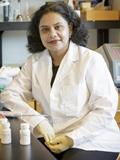
Biography:
Arpita Basu has completed her PhD in Nutrition from Texas Woman’s University followed by Postdoctoral studies in Clinical Nutrition from the University of California Davis Medical Center. She is an Associate Professor of Nutritional Sciences at Oklahoma State University. She has published more than 40 peer-reviewed reputable journal papers and invited book chapters. Her work in the area of functional foods and dietary bioactive compounds has been widely cited and she serves as an Editorial Board Member of the prestigious Journal of Nutrition.
Abstract:
Cardiovascular disease (CVD) continues to be the leading cause of morbidity and mortality in the global population and much of its etiology has been associated with nutritional factors. Dietary sources of polyphenols especially berries, cocoa and tea have been shown to reduce CVD risk factors in clinical studies and have been associated with reduced risks of diabetes, hypertension and CVD events in large observational cohorts. Our research has demonstrated the effects of green tea, berries and cocoa in improving CVD risk factors especially those related to the metabolic syndrome or pre-diabetes in randomized clinical studies. We reported the role of green tea beverage and supplements in lowering body weight in obese adults with the metabolic syndrome. We also observed significant effects of dietary blueberries and strawberries in lowering blood pressure and blood cholesterol, respectively in obese adults with the metabolic syndrome and elevated serum lipids. These effects were observed in studies ranging from eight to 12 weeks in duration. We also reported acute postprandial effects of cocoa beverage in increasing HDL-cholesterol following a fast food style meal challenge in obese adults with type-2 diabetes. In addition to improving conventional CVD risk factors such as obesity, hypertension and elevated blood cholesterol, berries and green tea were also shown to lower oxidative markers of atherosclerosis such as lipid peroxidation in these at risk individuals in our studies. Our research findings further the understanding of polyphenol-rich foods and beverages in the management of CVD risk factors using dietary achievable doses of berry fruits, cocoa and green tea.
Christina Ellervik
Boston Childrens Hospital, USA
Title: Lactase persistence, milk intake, and risk of ischemic heart disease and type 2 diabetes
Time : 10:30-11:00

Biography:
Christina Ellervik has completed her MD in 2002 and her PhD in 2007 from University of Copenhagen, Denmark and she was board certified in Clinical Biochemistry in 2009 from National Board of Health, Denmark. She was working as an Associate Professor at University of Copenhagen, Denmark from 2010 to 2015. She is currently a Visiting Scientist at Boston Children’s Hospital and Department of Preventive Medicine, Brigham and Women’s Hospital, Boston, MA, USA. She also the Founder of the Danish General Suburban Population Study (N=21,000) and Co-editor for Clinical Chemistry. She has published more than 50 papers in reputed journals
Abstract:
Previous meta-analyses have shown a reduced risk of ischemic heart disease and type-2 diabetes in individuals consuming dairy products vs. those who do not. We investigated the association between lactase persistence, milk intake and risk of ischemic heart disease and type-2 diabetes in three general population studies of approximately 100,000 adult Danes. We used the genetic variant LCT-13910 C/T (rs4988235) as proxy/surrogate for long-term milk intake in Mendelian randomization studies to assess indirectly whether there may be a causal association between milk intake and risk of ischemic heart disease and type-2 diabetes. The genetic variant LCT-13910 C/T is associated with downregulation of the lactase enzyme activity in adults of European descent, referred to as lactase non-persistence (genotype CC) and lactase persistence (genotypes TC and TT) and affects the ability of adults to digest the lactose in milk. We found no association between milk intake and risk of ischemic heart disease or type-2 diabetes in our observational studies. We found a higher intake of milk among lactase persistent participants (TC/TT) than among lactase non-persistent (CC) corresponding to a difference of approximately 2 glasses per week. However, we found no association between the genetic variant LCT-13910 C/T (proxy/surrogate for milk intake) and risk of ischemic heart disease and type-2 diabetes. The results from our Mendelian randomization studies thus supports the findings from the observational studies. These are important results, as many people, in Denmark as well as worldwide, consume milk
Marietta M Bumanglag
Food and Nutrition Research Institute, philippines
Title: Development of the 2016 FNRI Menu Guide Calendar (MGC): Helping meet the nutrient needs of adolescents through consumption of legumes and nuts
Time : 11:20-11:50
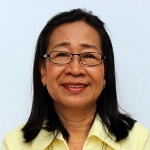
Biography:
Ms Marietta M. Bumanglag, RND, is a Senior Science Research Specialist at the FNRI-DOST, the country’s lead agency in food and nutrition research & development. She obtained her Master of Public Health from the University of Queensland, Australia. Her project involvement includes Recipe development, Recipe/menu evaluation and Development of dietary tools : recipe booklets and Menu Guide Calendars (MGC) since 2004 as senior author. Her publication included the FNRI MGCs, LUTONG FNRI: Brown Rice recipes para sa Lahing Kayumanggi and Mga Katutubong Gulay, Recipe booklet utilizing malunggay leaves powder and yacon tubers, and Nutritious recipes for the FNRI supplementary feeding program
Abstract:
Failure to meet increased demands for energy and nutrients and poor eating habits have long term health, growth and development consequences in adolescents. A calendar to promote consumption of healthier meals in adolescents to help meet their nutrient needs through consumption of legumes and nuts was developed. The following activities were conducted: Focus Group Discussion (FGD) among panelists (n=8) to explore adolescents’ perceptions and insights towards food, eating behavior and food preferences; two (2) recipe trials and sensory evaluation to determine acceptability of recipes based on the Hedonic Rating Scale scores of sensory panelists (n=15; n=50) ; estimation of energy and nutrient content of recipes using the FCT + Menu Eval Software; photo-documentation and formulation of 4-week cycle menus. Themed “Helping meet the nutrient needs of adolescents through consumption of legumes and nuts”, the MGC 2016 highlights 15 recipes consisting of snacks, one-dish meal and viands incorporated in the 4-week cycle menu. The recipes utilized locally available and familiar legumes: green and red mung beans, lima beans, peanuts, white and red kidney/snap beans, pigeon pea and string bean seeds. Other features included articles on legumes and nuts, nutritional needs of teenagers and tips on encouraging teens to eat healthy foods and Pinggang Pinoy for teens, 13-18 years. The calendar may serve as a reference/guide for homemakers/food providers in preparing nutritious and varied meals, and a challenge for adolescents to try new and exciting recipes. The MGC is downloadable in the FNRI website for wider audience reach and dissemination
Daniela Assimiti
California Prep International School, Thailand
Title: Mineral deficiencies: A preliminary study on individuals of different nationalities living in Thailand by observing the fingernails
Biography:
Abstract:
Ozlem Tokusoglu
Celal Bayar University, Turkey
Title: Innovative Industrial Frying Oil Improved with Antioxidant-Emulsifier and Antipolymerizing Agent Formula: Polar Compounds and Fatty Acid Stability By Repetitive Frying
Time : 12:20-13:20

Biography:
TokuÅŸoÄŸlu has completed her PhD at Ege University Engineering Faculty, Dept of Food Engineering at 2001. She is currently working as Associate Professor Dr faculty member in Celal Bayar University Engineering Faculty Department of Food Engineering. TokuÅŸoÄŸlu performed a visiting scholar at the Food Science and Nutrition Department /University of Florida, Gainesville-Florida-USA during 1999-2000 and as visiting professor at the School of Food Science, Washington State University, Pullman, Washington,USA during April-May 2010. She has published many papers in peer reviewed journals and serving as an editorial board member of selected journals. TokuÅŸoÄŸlu published the scientific edited two international book entitled Fruit and Cereal Bioactives: Chemistry, Sources and Applications and entitled Improved Food Quality with Novel Food Processing by CRC Press, Taylor & Francis,USA Publisher, third book Food By-Product Based Functional Food Powders is in progress; Dr Tokusoglu also published two national books entitled Cacao and Chocolate Science and Technology and Special Fruit Olive: Chemistry, Quality and Technology. She organized and/or administered as Conference Chair at many conferences and congress in various parts of USA and Europe.
Abstract:
Innovative frying oil ‘’Spil Innova Fryoil’’ which contain antioxidant, emulsifier and antipolymerizing additive constituents was developed and the quality profiles of improved frying oil and fried food products with above-mentioned oil was evaluated. The physicochemical quality, sensory quality profile, gas chromatography (GC) fatty acid profile, total polar compound, oxidative stability (rancimate) and overall fried food quality of new oil and fried food were performed. It was determined that the total polar compound levels of ‘’Spil Innova Fryoil’’ was stable between 1th-15th (even 10th-15th) frying process. Linoleic acid (C18:2; omega-6) was preserved and no trans acid increasing was found by repetitive fryings; no increased amount of trans-oleic acid (elaidic acid) and trans-linoleic acid (linoleadic acid). It was observed that the used jujube extract additive gave more stability to innovative frying oil; polar compounds of fried potato oils by 5th,10th,15thfrying process and also the fried potato color was stable after repetitive frying
Bruce P Burnett
Entera Health, Inc., USA
Title: Gastrointestinal Survival of Oral Immunoglobulins Allows for the Management of Gastrointestinal Conditions and Diseases
Time : 14:00-14:30

Biography:
Bruce Burnett is an expert in the field of nutritional products development. He is Vice President of Compliance, Regulatory, & Medical Affairs at Entera Health, Inc. Dr. Burnett received his BS degrees in Biology and Chemistry from Eastern Washington University and his Master’s and PhD in biochemistry and biophysics from Yale University. He also received several NIH and SBIR grants, served on the ad hoc study section for review of SBIR awards and acts as a reviewer for several journals around the world. Dr. Burnett has 50 peer-reviewed publications, 2 book chapters, and over 30 peer-reviewed published abstracts
Abstract:
Gastrointestinal Survival of Oral Immunoglobulins Allows for the Management of Gastrointestinal Conditions and Diseases: Oral immunoglobulins have been tested clinically for over 40 years, yet only recently have these agents been used in patients to manage gastrointestinal conditions and diseases. Multiple studies in animals and humans have found that a percentage of these functional proteins survive the harsh gastric environment into the small and large intestines with small amounts remaining active for antigen binding in the feces. There is a structural basis for this phenomenon, which is due to the highly crosslinked, disulfide bond containing nature of antibodies, 3-dimensional folding and post-translational glycosylation. Dozens of studies suggest the utility of these molecules in infectious enteropathy against bacteria, viruses, and protozoa, but they more recently have been tested clinically in irritable bowel syndrome with diarrhea (IBS-D), inflammatory bowel disease (IBD), and HIV-enteropathy. In vitro and in vivo studies demonstrate that a medical food preparation containing serum-derived bovine immunoglobulin/protein isolate (SBI), purified from USDA-approved edible plasma, binds to a wide variety of microbial antigens generated by the cow with exposure feed-lot environments. This protein preparation with over 50% IgG has been shown to safely manage IBS-D, IBD, and HIV-enteropathy by providing for a distinctive nutritional requirement. More likely than not, this occurs through the binding of microbial components (i.e., endotoxins) generated during dysbiotic growth and degredation of microbes in the gut. SBI represents a new type of food-based therapy for the management of chronic conditions and diseases of the intestinal tract
Takashi Takeuchi
Tottori University, Japan
Title: Benificial Effect of Lactoferrin on the Renal Failure In 5/6 Nephrectomized Rat
Time : 14:30-15:00
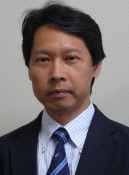
Biography:
Takashi Takeuchi is a Professor of Department of Veterinary Medicine, Tottori University, Japan. His research interest is focused on the novel function of lactoferrin, including intestinal absorption, improvement of liver and kidney failure, anti-stress and anti-nociceptive effect, etc.
Abstract:
Lactoferrin (Lf) is a physiological compound produced by exocrine glands and released at a high concentration in colostrum. It plays numerous biological and beneficial functions. In this study, we investigated a benificial effects of Lf on the chronic kidney disease model induced by 5/6 subtotal nephrectomy rat. Male Wistar rats in 5 weeks old, underwent resection of 2/3 of the left kidney and total excision of the right kidney with an interoperative interval of 1 week (NX rat). The rats were divided into four groups, NX + BSA (300 mg/kg, po), NX+bovien Lf (300 mg/kg, po) and sham+BSA, sham+bLf. Blood and urine samples were collected every 2 weeks, and the blood urea nitrogen (BUN) and creatinine (Cre) were determined up to 12 weeks after the operation. Blood pressure was also measured during the first two weeks. At the 12th week, the rats were sacrificed, then kidney tissue was collected and analysed histopathologycally. In the NX+BSA group, BUN, Cre, urine volume and urinary protein increased time dependently. Blood pressure also incrased at the 3rd day after the operation in NX+BSA rat. In contrast, NX+bLf group showed lower BUN, urinal protein/Cre ratio, and suppressed the increment of blood pressure. Although bLf improved decreasing of glomerular counts, there were no significant differences in interstitial fibrosis and glomerular sclerosis (Masson’s trichrome stain) between NX+BSA and NX+bLf group
Osama O Ibrahim
Bio Innovation LLC, USA
Title: Sweeteners in our diets and WHO’s guidance on free sugars uptake
Time : 15:00-15:50
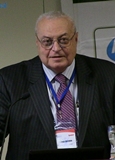
Biography:
Osama O Ibrahim is a highly-experienced Principal Research Scientist with particular expertise in the field of microbiology, molecular biology, food safety and bioprocessing for both pharmaceutical and food ingredients. He is knowledgeable in microbial screening, culture improvement; molecular biology and fermentation research for antibiotics, enzymes, therapeutic proteins, organic acids and food flavors; biochemistry for metabolic pathways and enzymes kinetics, enzymes immobilization, bioconversion, and analytical biochemistry. He was an External Research Liaison for Kraft Foods with Universities for research projects related to molecular biology and microbial screening and holds three bioprocessing patents and multiple publications. Upon his retirement from Kraft Foods he formed his own biotechnology company providing technical and marketing consultation for new startup biotechnology and food companies. He has received his BS in Biochemistry with honor and two MS degrees in Microbial Physiology/ Fermentation and in Applied Microbiology. He has received his PhD in Basic Medical Science (Microbiology, Immunology and Molecular biology) from New York Medical College. He is a Member of American Chemical Society, American Society of Microbiology and Society of Industrial Microbiology since 1979
Abstract:
Free sugars refer to monosaccharides such as (glucose, fructose) and disaccharides such as (sucrose, maltose) added to foods and drinks by manufacturer, cook or consumer and sugars naturally present in honey, syrups, fruit juices and fruit juice concentrates’. Reducing free sugars intake to less than 10% of total daily energy uptake was recommended by the WHO (World Health Organization) for the first time in 1989 and was further elaborated by a joint WHO/FAO (Food and Agriculture Organization) expert consultation. This new updated WHO guideline calls for further reduction of free sugars intake to less than 5% of total energy uptake if possible. This guideline is to halt the rise of diabetes and obesity and reduce the burden of premature death due to non-communicable disease (NDCs). It does not refer to sugars in fresh fruits and vegetables and sugars naturally present in milk, because there is no reported evidence of adverse effects of consuming these sugars
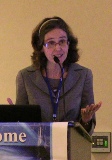
Biography:
Alison Burton Shepherd is a Senior Lecturer in Adult Nursing at De Montfort University, UK. In 2010, she became a Queens Nurse, which is an Award given for excellence in Nursing Care within the community setting. She works as an Advanced Nurse Practitioner and she is an Independent Nurse Prescriber. She is also an Inspector for the Care Quality Commission
Abstract:
Chemo-radiotherapy (CRT) causes or exacerbates symptoms, such as alteration or loss of taste, mucositis, xerostomia, fatigue, nausea and vomiting, with consequent worsening of malnutrition. It is well known that radiotherapy is invariably associated with mucositis, xerostomia, dysphagia, haematological toxicities and other acute side effects, whose incidence increases when chemotherapy is also administered, and that oral mucositis incidence leads to higher unplanned breaks and delays in radiotherapy administration. In addition, in many patients such toxicities may be very severe and even life threatening and may lead to treatment interruptions that are invariably associated with poorer outcome. This presentation will review best practice in the nutritional management of patients undergoing chemotherapy and radiotherapy
Fatma Chebbi
hopitaux universitaires pitie-salpetriere, France
Title: Adiponectin a marker of malnutrition?

Biography:
Abstract:
Introduction and purpose of the study Adiponectin (ADPN), adipokine produced by adipose tissue, circulates in several forms, one form of high molecular weight (HMW) is considered to be biologically active. Unlike leptin, ADPN concentrations are lower in obese and / or insulin-resistant patients. Bariatric surgery bypass provides a significant reduction in body fat, improved carbohydrate and lipid parameters and standardization of ADPN concentrations. The long-term surveillance of patients who underwent bariatric surgery has allowed us to observe that there was, in some cases, exaggerated ADPN elevations among patients who had malnutrition with significant hypoalbuminemia. In these circumstances, we quantified the total ADPN (TADPN) and HMW in subjects with hypoalbuminemia and we followed the evolution of ADPN in malnourished patients before and after refeeding. Materials and methods 57 subjects (28 W, 29 M), hospitalized at Pitié-Salpêtrière with hypoalbuminemia were explored. These patients were classified into two groups depending on the concentration of serum albumin: severe hypoalbuminemia <20 g / L (13 W, 22 M) and hypoalbuminemia 20 g / L ≤ AB ≤ 30 g / L (15 W, 7 M). 36 healthy volunteers constitute the control population (20 W, 16 M). We followed 5 patients (4 W, 1 M) who presented hypoalbuminemia after bariatric surgery. The TADPN was assayed by ELISA (ALPCO) and HMW was quantitated by an automated assay (Fujirebio Lumipulse G1200). Results As in controls, the concentrations of TADPN and HMW are higher in women than men among patients with hypoalbuminemia. However, serum concentrations of HMW ant TADPN were significantly higher in subjects with severe hypoalbuminemia whatsoever in men (p = 0.0004) and in women (p = 0.0003) . We were able to demonstrate that there was an inverse correlation between hs-CRP and TADPN and HMW (p = 0.0003 and 0.0002, respectively). Finally, by applying a partial correlation test (by fixing hs-CRP concentrations), there is a significant negative correlation between albumin and TADPN (p = 0.013), albumin and HMW (p = 0.015). Moreover, when hypoalbuminemia is corrected through therapeutic care, we see decreased TADPNT and HMW blood concentrations. Conclusions We show in this work that the values of TADPN and HMW exceed the usual values in patients with hypoalbuminemia but they must be interpreted according to hs-CRP. The concentrations of adiponectin return to normal after hypoalbuminemia correction. While the regulatory mechanisms are still unknown, we propose to evaluate the interest of TADPNT and HMW dosage as a nutritional marker by applying it to a larger population.
Habte Michael Habte Tsion
Nanjing Agricultural University, China
Title: Threonine Affects Digestion Capacity And Hepatopancreatic Gene Expression Of Juvenile Blunt Snout Bream (Megalobrama Amblycephala)
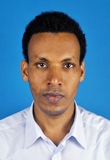
Biography:
Habte-Michael Habte-Tsion studied M.Sc. and PhD in Aquaculture (Fish Nutrition) at Nanjing Agricultural University (NAU) in one of the most prestigious universities in China and he received great academic records and achievements (e.g. he has received national and institutional rewards and awards). He has published 1 academic book and 20 original research papers in preeminent peer-reviewed scientific journals. He is also a reviewer in 7 international journals. As a young scientist with an excellent career start, he has great potential for further innovative research task.
Abstract:
The present study conducted a 9-week feeding trial to investigate the effects of threonine (Thr) on the digestion capacity and hepatopancreas gene expression of juvenile blunt snout bream (Megalobrama amblycephala). For this purpose, three tanks (300 litres/tank) were randomly arranged and assigned to each experimental diet. Juvenile fish were fed with diets containing graded Thr levels (0.58, 1.08, 1.58, 2.08 or 2.58% of the diet) to apparent satiation four times daily. At the end of the feeding trial, the results indicated that hepatopancreas weight, hepatosomatic index, hepatopancreatic protein content, intestinal weight, intestosomatic index and intestinal protein content increased with increasing dietary Thr levels up to 1.58% and thereafter decreased (P<0.05). The activities of chymotrypsin, trypsin, amylase and lipase elevated as dietary Thr levels increased up to 1.58% (P<0.05), while these activities decreased in most cases after 1.58% dietary Thr except for chymotrypsin and trypsin in the hepatopancreas (plateau 1.58 – 2.08% Thr). The relative gene expression levels of chymotrypsin, trypsin, amylase, lipase, target of rapamycin and insulin-like growth factor-I were up-regulated, and the highest values were observed with 1.58% dietary Thr or 1.58 and 2.08% dietary Thr, whereas the relative gene expression levels of eukaryotic translation initiation factor 4E-binding protein 2 gradually decreased (P<0.10) as dietary Thr levels increased up to 1.58% and thereafter significantly increased (P<0.05), which could explain that about 1.58% dietary Thr could improve the growth and development of digestive organs and activities of digestive enzymes of juvenile blunt snout bream.
Jeongseon Kim
National Cancer Center, South Korea
Title: Genetic variation in PPARGC1A may affect the role of diet-induced inflammation in colorectal carcinogenesis

Biography:
Jeongseon Kim is a Professor in the Department of Cancer Control and Policy, GCSP. Kim has been primarily involved in the investigation of dietary factors, using epidemiologic approaches, in the cause and prevention of chronic diseases especially cancer and its important conditions. Principal to this work in the field of nutritional epidemiology has been development of methods to measure dietary intake among populations. Thus she has dedicated continuously significant endeavor to the development and validation of dietary assessment tools to provide accurate and reliable assessments of a wide spectrum of nutritional factors. In addition, she has devoted to implement the evaluation of biological markers of dietary intake using particularly plasma and serum. Her ongoing research projects are 1) development of national cancer screening cohort 2) a study on dietary factors related to the prognosis of breast cancer patients 3) gene-diet interaction in the etiology of gastric cancer 4) evaluation of hazardous materials from food sources (e.g., methyl mercury, lead, and cadmium)
Abstract:
As chronic inflammation plays an important role in colorectal carcinogenesis, inflammation related gene-diet interactions may affect colorectal cancer risk. Therefore, we investigated whether genetic susceptibility alters the effect of diet-induced inflammation on the risk of colorectal cancer. This study included 701 colorectal cancer patients and 1,402 controls. We selected six polymorphisms in four genes (IL1B, TNF, PPARG and PPARGC1A) and calculated diet-induced inflammation using the dietary inflammatory index (DII). Multiple logistic regression models were applied to estimate odds ratios (ORs) and corresponding 95% confidence intervals (CIs) of the main effect of genetic variants and the DII as well as their interactions. Subgroup analyses were performed by anatomic site and other risk factors. Among the investigated polymorphisms, heterozygous carriers of rs3774921 in the PPARGC1A gene were at higher risk of colorectal cancer (OR=1.30; 95% CI, 1.05-1.62 for TC vs. TT). When the data were stratified by rs3774921 genetic variants, the role of a proinflammatory diet in colorectal carcinogenesis was more prominent among homozygous variant allele carriers (OR=4.35; 95% CI, 1.89-10.03 for high vs. low DII) (P for interaction=0.022). When stratified by anatomic site, this association was much stronger for rectal cancer patients (OR=7.57; 95% CI, 2.30-24.93 for high vs. low DII) (P for interaction=0.013). Additionally, this interaction was significant among those older than 55 years old, not exercising regularly and drinking alcoholic beverages. Conversely, the other investigated polymorphisms did not show any association or interaction with diet-induced inflammation in relation to colorectal cancer risk. This study suggests that a pro-inflammatory diet has a differential effect on colorectal cancer risk based on PPARGC1A genetic variation with differential associations according to anatomic location and other risk factors. Although the findings support the molecular link between metabolism and inflammation, future studies are required to confirm our results
Neha Kapoor
University of Westminster, UK
Title: Nutrition sensitive intervention combined with counselling to enhance quality of life among Indian female palliative cancer patients
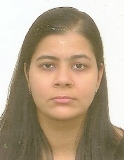
Biography:
Neha Kapoor is a PhD candidate in Public Health Nutrition at University of Westminster, London, UK. She holds a MSc in Nutrition and a BSc in Human Nutrition and Dietetics. Her area of research is studying levels of malnutrition and developing nutritional strategies to control malnutrition among the Indian Palliative Cancer patients. She has worked as a Trainee Nutritionist at Glaxo SmithKline in the Department of Nutrition Claims R&D and has contributed to the development of new health food drinks targeted to improve nutritional status of the Indian population
Abstract:
Worldwide prevalence of malnutrition, amongst cancer palliative patients, is 81%. As cancer progresses, patients’ develop malnutrition owing to disease and chemoradiotherapy. Aim of this study was to improve nutritional status of female palliative cancer patients and their quality of life by counselling and providing nutrient rich natural food (IAtta). Female cancer patients (n=47) attending palliative care clinic (AIIMS, New Delhi); with symptoms of cachexia were randomly distributed into control group (CG, n=24) and intervention group (IG, n=23). IG received 100grams of IAtta and CG received wheat flour to be consumed as breads daily along with nutritional counselling for three months. Anthropometric measurements [weight, percentage body fat (%BF) and mid upper arm circumference (MUAC)] and quality of life (EORTC-C30 Questionnaire) were assessed at baseline and after three months. Data was analysed using paired t-test and Wilcoxon signed-rank test on variables assessed. P- value < 0.05 was considered statistically significant at 95% confidence interval. Of 47 patients, 17 in IG and 22 in CG completed the study. Patients in both groups maintained their body weights (IG, p= 0.284; CG, p=0.401) by end of the study. %BF (p=0.041) decreased significantly in the CG and were maintained in IG (p= 0.289). Furthermore, under quality of life domains, at end of study period; IG disclosed significant improvement in fatigue (p= 0.012) and appetite (p=0.004), while CG reported significant decrease in physical functioning (p=0.014). Nutrition sensitive intervention (IAtta) along with counselling may improve quality of life and stabilize body fat in female cancer cachexia patients receiving chemoradiotherapy
Farshad Goodarzi Boroojeni
Institute of Animal Nutrition, Germany
Title: The effects of fermentation and enzymatic pre-digestion of pea on nutrient digestibility in broilers
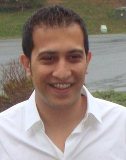
Biography:
Farshad Goodarzi Boroojeni has completed his second PhD at Institute of Animal Nutrition, FU Berlin and currently holds the position of Poultry Nutritionist and Researcher. He has 12 years of research experience in Animal Science and Nutrition. He has more than 13 publications in reputed peer reviewed journals. He is serving as a Reviewer for more than 10 reputed journals and as an Editorial Board Member of two international peer reviewed journals, “Journal of Veterinary Research and Animal Husbandry” and “Journal of Animal Nutrition”
Abstract:
Fermentation with probiotics and enzymatic pre-digestion may be able to improve the nutritional quality of pea. This study examined the impacts of different inclusion levels of raw, fermented or enzymatic pre-digested peas on nutrients digestibility in broilers. For fermentation, pea was mixed with water (1:1) containing 2.57×108 Bacillus subtilis (GalliPro®) spores/kg pea and then fermented for 48 hours at 30 oC. For the pre-digestion process, pea was soaked in water (1:1) containing 3 enzymes, AlphaGal™ (α-galactosidase), RONOZYME® ProAct (protease) and VP (pectinases) and incubated for 24 hours at 30 oC. Nine standard diets were formulated by supplying 10, 20 and 30% of the protein with raw, fermented and pre-digested peas. The apparent ileal digestibility of Ca, P, K, protein, AAs and fat were measured at d 35 . Data were subjected to ANOVA using the GLM procedure. Both types of processes reduced the raffinose, trypsin inhibitor and resistant starch. Increasing level of pea products reduced BWG and FI. Broilers fed pre-digested pea had the best FCR at d 35. Both processes had an identical effect on ileal digestibility of all nutrients except starch. The ileal digestibility of starch in raw pea was lower compared with both processed groups. The digestibility of Thr, Lys and Met were higher in 30% groups compared with 10% groups, while chicken fed 10% products showed highest digestibility of starch. In conclusion, both processes could relatively improve the nutritional quality of pea. Replacement of soybean by pea products at less than 20% inclusion level might have no negative impact on the nutrient digestibility and growth. These indicate the feasibility of both processes for nutritional quality improvement of pea, as a partial replacement for soybean in broiler feed
Keonie Moore
ReMed Natural Medicine Clinic, Australia
Title: The role of vitamin E in the management of gliomas: A review of vitamin E isomers, their role in adjunctive cancer treatments and implementation in case studies

Biography:
Keonie Moore has completed her studies at the renowned School for Complementary and Natural Medicine, Southern Cross University, Australia. She has become a highly sought-after Presenter for her experience in scientific implementation. She is the Director of ReMed Natural Medicine Clinic, a multi-modality clinic that exemplifies scientific implementation in the Australian Health Sector. She is involved in clinical mentoring to enhance additional integrative clinics and practitioners in the assimilation of research findings and evidence into clinical practice. The highlights of her speaking engagements include presenting on Metabolic Syndrome to the Integrative Medicine Education and Research Group, Alfred Hospital and published ‘Metabolic Syndrome: A case for collaborative care’ in the reputable journal, Advances in Integrative Medicine and keynote speaker at the 2nd International Conference on Endocrinology, Chicago IL.
Abstract:
Whilst findings of epidemiological meta-analyses for an inverse relationship between dietary intake of vitamin E and risk of cancer have been inconsistent at best, vitamin E continues to attract interest due to its ability to protect cells from free radical damage and induce apoptotic cell death in various cell types. Earlier studies focused solely on the apoptotic action of alpha-tocopherol, with some authors even concluding that other vitamin E analogues have no influence on cell survival or the ability to induce apoptosis. However, we have seen an emergence of research into the cytotoxic and apoptotic activities of tocotrienols, particularly gamma and delta. Vitamin E exists naturally as a combination of all eight isomers. Further exploration of research reveals that supplementation with single isomers may impact the distribution of other vitamin E isomers and have the ability to cause detrimental outcomes such as reduced bone health and increased cardiovascular risk factors. For effective use of vitamin E in clinical cases, a deeper understanding of the vitamin E isomers and the dynamic balance between them is essential. Case studies in the management of glioma will be used as a guide to highlight the use of implementation science; to promote the integration of research findings and evidence into healthcare clinical practice. There will be a strong practice based focus on the role of vitamin E in enhancing cancer treatment outcomes, reducing toxicity of chemotherapy drugs to healthy cells and its role in attenuating oxidative stress in maintenance of health. Practical interventions to ensure safe administration of vitamin E and major flaws with current practices will be addressed.
Yuta Maekawa
Tottori University School of Veterinary Medicine, Japan
Title: Lactoferrin facilitates potential glucose regulation accompanied by the enhancement of incretin effect
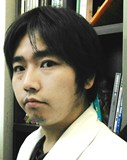
Biography:
Yuta Maekawa is a fourth year PhD student at The United Graduate School of Veterinary Science in Yamaguchi University. His research focuses on the effect of lactoferrin, a glycoprotein found in various mammalian body fluids, on glucose metabolism. He was awarded the Student Award of XIIth International Conference on Lactoferrin, Structure, Function and Applications on 2015
Abstract:
Lactoferrin (Lf) is known for its physiologically pleiotropic properties. Nevertheless, the effects of Lf on glucose regulation have not been adequately analyzed. In the present study, we investigated whether Lf affects potential glycemic metabolism and glucose absorption from the small intestine in rats. Bovine Lf (bLf, 100 mg/kg) was intraperitoneally administered to rats before intravenous glucose injection (intravenous glucose tolerance test, IVGTT) or oral glucose administration (oral glucose tolerance test, OGTT). In IVGTT, bLf pretreatment had no significant effect on plasma glucose or insulin. In OGTT, the bLf group tended to show lower plasma glucose at and after the 15-min peak than the control group, and decreased at 180 min. The change in plasma insulin from 0 to 30 min was higher in the bLf group than in the control group. Total plasma GIP was lowered at 60 min by the bLf treatment, while an immediate increase in total plasma GLP-1 was observed within the bLf group undergoing OGTT. In addition, bLf was associated with an increase in the amount of glucose absorbed into the everted jejunum sac. These results suggest that Lf may have a potential to suppress hyperglycemia, accompanied by plasma insulin elevation via transiently accelerating GLP-1 secretion, and that Lf even enhances glucose absorption from the small intestine. Lf may have the potential to promote glucose metabolism via the so-called incretin effect
Faheem Shahzad Baloch
Abant Izzetbaysal University, Turkey
Title: Genomic and Transcriptomics Approaches for biofortifying the common bean seeds for increased Zn and Fe contents

Biography:
Faheem Shehzad BALOCH has completed his PhD at the age of 31 years from Çukurova University under cultural Exchange Scholarship program. He worked as assistant professor at NiÄŸde University during 2013-2014. Now he is working as assistant professor at Abant izzet baysal University. He is orking on genomics tools in cereals and legumes for the trait of interest. He has more tha 35 publication in journal of international repute. He has been serving as an editorial board member of some national and international journals
Abstract:
Mineral malnutrition particularly Zn and Fe deficiency are major source of concern for public health resulting in many kinds of mental and physical disorders in developing and least developed countries. Phaseolus vulgaris L. is among one of the most important legumes grown worldwide that has appeal to farmers and consumers and represent about 50% of grain legumes used for human consumption in many parts of the world. Therefore, biofortification of the common bean is one of the major option for eliminating the mineral malnutrition in the developing world. There are various strategies for biofortifying the common bean seed through conventional plant breeding and as well integrating using modern biotechnological techniques. Therefore, to achieve the objectives for transcriptomics, the NRAMP (the natural resistance-associated macrophage protein) genes considered to be potential candidates for improvement of mineral nutrients like zinc and iron. Transcript expression of PvNRAMP3 was observed and expressed at different stages of pod development. The expression was increased with increase in pod length of common bean. PvNRAMP4, PvNRAMP5.2 and PvNRAMP1, PvNRAMP7and PvNRAMP5.1showed negligible or undetectable expression in the pods. In short, PvNRAPM3 seems to be excellent candidate however, detailed functions such as tissue specificity and subcellular localization of the gene will be explored in future. Besides this, We have a TÜBÄ°TAK (National) Project for increasing mineral contents in common bean seeds and identify linked DNA markers through genome wide association mapping (GWAS) using DArTseq and SNP markers. We are using 192 common bean genetic resources (landraces), collected from various topographical positions of Turkey, for phenotyping for Zn and Fe contents of seeds under multi locational field trials at various environmental locations. Same set of germplasm is being genotyped by genotyping by sequencing (GBS) technology and hundreds of thousands markers will be used for association mapping studies. Bioinformatic applications will be utilized to identify linked markers though linkage disequilibrium technique and identified linked markers will be further used for marker assisted selection in current breeding programs
Alexandra M Johnstone
University of Aberdeen, UK
Title: Mechanisms of protein induced satiety for appetite control during weight loss

Biography:
Alexandra M Johnstone is recognized as a leading innovative UK Researcher within the field of human appetite control and specifically, the role of dietary protein with strong emphasis of application in the food industry. Since completing her PhD in 2002, she has produced an extensive publication record (>60 peer reviewed publications in high impact journals). Her philosophy is ‘Better food for better health’. She is a partner in three EU grants (SATIN, Full4Health, NeuroFAST), a Reviewer of many international journals and works with a variety of stakeholders for research impact (Non-Government Organizations, Policy, Media & Food Sector)
Abstract:
With the ever-increasing obesity problem comes the search for effective dietary strategies to either prevent weight gain, promote weight loss or to maintain a lower body weight. Although one diet does not fit all, high-protein diets seem to provide a tool to promote appetite control and hence body weight control. Dietary strategies that can help reduce hunger and promote fullness are beneficial, since these are limiting factors for success. High protein diets, specifically those that maintain the absolute number of grams ingested, whilst reducing calories are a popular strategy for weight loss (WL) due to the effects of protein induced satiety to control hunger. This effect has been shown in ad libitum clinical studies lasting from 1 to 14 days, up to 6 months. In addition, greater WL has been achieved in comparison to control diets. The mechanisms responsible for the high satiating effect of protein are not known but likely to be around amino acid metabolism and food-gut-brain interactions linked to gut hormones. It is still not clear exactly the amount (g or %), type of protein (vegetable, diary, animal) that is required to promote satiety thus these mechanisms will be a focus for future research. Both the safety and efficacy of high-protein WL diets have been questioned, particularly in combination with low-carbohydrate advice. This has been recently reviewed with growing evidence to support the use of high-protein, moderate-carbohydrate diets as a dietary tool to achieve weight control (30% protein, 30% fat and 40% carbohydrate).

Biography:
Abstract:
In these days the most important subject that the people are thinking about is about on “healthy eating” such as which food is good for eating and which should be prohibited. Despite professionals and laymen advices to us what to eat to be healthy, recently scientists have some good suggestions about “healthy diets” that are depends on molecular biology, genetics, toxicology, and chemistry revealed some complex interrelationships of food with toxicology nutrition with detoxification and diet with the prevention of degenerative disease that should finally enable us to make judgments concerning us about “Healthy diets” In order to have healthy life, healthy food or diet is very important for this reason it should be always take in consideration The importance of diet and nutrition in the detoxication of chemicals Under these subject various facts must be taken in consideration such modification of intestine absorption and intestine cell. Under the the heading of diet it covers very large area from drug to processed food or processed food to raw vegetables or even vitamins. Also the term of Cell includes cell of food or living organism. On the other hand, signaling between cell are very important even for the toxic consequences of diet and wealth such as it was shown that there is cancer cell signaling targeted, by spice Derived nutraceuticals or other type cellular signaling systems intracellular mechanisms that are controlled by intracellular calcium. The consequences of having food are Either good healthy life or life with lot difficulties such as disease the worst is cancer, but having healthy food can also prevent the toxic affect of food
Sevinc Inan
Izmir University of Economics, Turkey
Title: The beneficial effects of CAPE and EGCG on breast cancer cell lines

Biography:
Abstract:
Oxidative stress is the result of an imbalance between excessive reactive oxygen species and anti-oxidants mechanisms. Recently, the anti-oxidant caffeic acid phenethyl ester (CAPE) and Epigallocatechin Gallate (EGCG) have come to the attention of researchers. CAPE is an active component isolated from the propolis found in honeybee hives. CAPE has been determined to have neuroprotective, anti-oxidant, anti-inflammatory and anti-apoptotic properties. It is nontoxic and is consumed as a traditional medicine. As a potent anti-oxidant and NF-ĸB inhibitor, CAPE is more effective than the other types of natural flavonoids found in fruits, vegetables and tea. In vivo studies showed that CAPE prevents the formation of ROS, malondialdehyde (MDA) and peroxynitrite. (EGCG) is also an anti-oxidant polyphenol found in green tea. It may have health benefits as a nutritional supplement for cancer, atherosclerosis, diabetes, neurodegenerative diseases and HPV virus infection. Anti-oxidant effects of EGCG protect cells from lipid peroxidation and DNA damage induced by reactive free radicals. EGCG directly interacts with proteins and phospholipids in the plasma membrane and regulates signal transduction pathways, transcription factors, DNA methylation, mitochondrial function and autophagy to show many of its beneficial biological actions. EGCG induces apoptosis in several human cancer cell lines including breast, prostate, lungs, ovaries, and liver. In this presentation, the beneficial effects of CAPE and EGCG on MCF-7 and MDA 231 breast cancer cell lines will be disscussed
Tulay Merve Temel
Yildiz Technical University, Turkey
Title: The Biological Nutritional and Therapeutic Effects of Silica
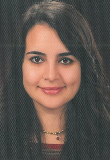
Biography:
Tülay Merve Temel is postgraduate student at Bioengineering Department of Yıldız Technical University, Ä°stanbul, Turkey. Her working areas are biomaterials, lipid technology, environment technology and silica aerogels production and characterization.
Abstract:
A wide range of nutritional supplements have been suggested to prevent the inadequate daily intake of minerals (calcium, iron, magnesium, silica), vitamins and other nutrients that are essential for human health. Silicon is one of the most abundant trace minerals in the human body which is especially found in connective tissues as the aorta, bone, skin, and tracheas [1,2]. Further, it may be found in heart, liver, lung, and muscle in the form of ortho-silicic acid at lower levels. In this regard, silicon is an essential mineral for bone mineralization, collagen synthesis, skin, hair and nails. Its supplementation increases bone mineral density and thus reduces bone fragility. Silicon has additional important health effects in relation to immune system enhancement. Furthermore, silicon contributes to the formation of cross-links between collagen and proteoglycans [3]. Since silica has a fundamental importance to human health, there is considerable attention by the medical community to improve silica based dietary supplements. The main aim of this study is to review the researches that address the nutritional importance, biological and therapeutic effects of silica.
Selda Demirtas
Ufuk University, Turkey
Title: The development in diagnosis of Subclinic Cobalamin Deficiency

Biography:
Selda Demirtas, graduated from Hacettepe University, Faculty of Medicine, Ankara-Turkey in 1990. She has a Specialist Degree on Clinical Biochemistry, 4 years of post graduate after MD from Ankara University, Department of Biochemistry, in 1995.She is currently Head of Department of Biochemistry in Ufuk University, School of Medicine in Ankara-Turkey. Her researches focus mainly on vitamin B12. She was the first to report of relationship between cognitive failure and Vitamin B12 deficiency in young and middle age individuals and Reference Ranges of Vitamin B12, Holotranscobalamin and Methyl malonic acid in Turkey. She has more than 60 published researches
Abstract:
Background: The growing data indicates that subclinical cobalamin deficiency (SCCD) is being diagnosed more than ever. Because of its common occurence than classical cobalamin deficiency, SCCD is an important condition for public health. One question with SCCD is whether it is only a state of mild metabolic abnormality without any clinical signs or symptoms or is associated with clinical signs and symptoms, albeit vague. The exact prevalence of SCCD which is more frequent in young and middle-aged adults is largely unknown . Furthermore, the absence of ideal test marker for cobalamin deficiency is aggrevate the situation. It is clear that these problems can be solved with the evaluation of reference values of cobalamin and related tests in each population. In our current reference range study, serum cobalamin, folate and holotranscobalamin (Holo-TC) values, plasma homocystein and methyl malonic acid (MMA) levels were assayed in over the 400 healthy volunteers. The results indicated that, all of the tests except for the plasma homocysteine and MMA were found lower than detected by the manufacturer. They were divided to subgroups with respect to ages. Cobalamin and Holo-TC values of youngest group were differ from the oldest group. So, we suggest the use of own reference values for each population and Holo-TC should be used together with the serum cobalamin in diagnosing SCCD. In the another study, we observed that the cognitive test scores elevated with the increase of Vitamin B12 in young and middle-aged. In conclusion, SCCD is a hidden health problem that could be manifested by itself with a cognitive failure in the young and middle-aged population. The serum cobalamin around 190-250 pg / ml should be considered for the diagnosis of SCCD which manifested by the cognitive impairment and cognitive functions should be assayed to provide exact diagnose.
Yen Ting Tung
Taipei Medical University, Taiwan
Title: Effect of Melatonin on Growth and Abnormal Deposition of Extracellular Matrix Component in Uterine Leiomyoma Cells
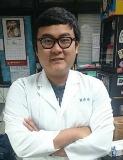
Biography:
Yen Ting Tung studying in Taipei Medical University of Nutrition and Health Sciences. He study in the effect of phytochemicals on leiomyoma and cancer disease.
Abstract:
Women suffering from leiomyoma account for a quarter of the world's female population. Study indicate that leiomyoma may be expand by estrogen imbalance, abnormal deposition of extracellular matrix and stem cell proliferation. Melatonin is an endogenous hormone produced by the pineal gland in the brain, can regulate physiological clock and secrete estrogen. In past studies, melatonin have antioxidant, anti-inflammatory, inhibit cancer cell growth and metastasis. In this study, we investigated the antitumor effect of melatonin on leiomyoma and smooth muscle cell (ELT3, UtSMC) in vitro. We examined the effects of melatonin on leiomyoma stem-like cells number, cell proliferation, cell cycle regulation, apoptosis or autophagy related protein expression and accumulation of extracellular matrix. 1. Melatonin significantly inhibited the proliferation of leiomyoma cell in a dose-dependent and time-dependent manner. 2. Melatonin reduced on leiomyoma stem-like cells number and induced leiomyoma cell early and lately apoptosis. 3. Melatonin induced apoptosis and autophagy related protein expression. 4. Melatonin inhibited accumulation of extracellular matrix on leiomyoma cell. These findings suggest that melatonin may inhibits leiomyoma cell proliferation and have the potential to improve the development of leiomyoma associated with functional food
Li Chun Lin
Taipei Medical University, Taiwan
Title: Isoliquiritigenin chemosensitizes to doxorubicin and inhibits the cells growth of human uterine sarcoma cells

Biography:
Li-Chun is a graduate student from Taipei Medical University of Nutrition and Health Sciences. She studies in the effects of chinese herbs and phytochemicals on cancer disease
Abstract:
Doxorubicin (Dox) is widely used for the treatment of several cancers. However, multi-drug resistance (MDR) is a major clinical problem and an important cause of treatment failure. How to increase chemosensitivity and reduce the dose of chemotherapeutic agents, in order to prevent drug side effects and the development of new chemotherapeutic agents are important. Uterine sarcoma is a rare gynecologic cancer. The patients sometimes are asymptomatic. It has the high degree of malignancy, poor prognosis and high mortality rate. It often be misdiagnosed as uterine fibroids. Isoliquiritigenin (ISL) is the flavonoid with chalcone structure isolated from licorice root. ISL has been shown to possess significant anticancer activities in many cancer types. In this study, we investigated the antitumor effects of ISL on human uterine sarcoma cancer cell MES-SA and the multi-drug resistant human uterine sarcoma cancer cell MES-SA/Dx5 and MES-SA/DxR-1. Our present results showed that, treatment of ISL alone or combination with Dox significantly inhibited the growth of cancer cells and increased the proportion of subG1 phase. Flow cytometry analysis indicated that ISL induced apoptosis and necrosis. In addition, ISL enhanced the autophagy associated protein expression of LC3Bâ…¡ and apoptosis associated protein expression of cleaved-PARP. ISL also inhibited Bcl-2 and phospho-mTOR protein expression. Moreover, ISL inhibited the migration of the cancer cells. Taken together, ISL can inhibit human uterine sarcoma cancer cells through apoptosis as well as autophagy, and increase the chemosensitivity to doxorubicin in multi-drug resistant human uterine sarcoma cancer cells MES-SA/Dx5 and MES-SA/DxR-1
Hsin Yuan Chen
Taipei Medical University, Taiwan
Title: The Effect of Isoliquiritigenin-Induced Apoptosis and Autophagy of Human Endometrial Cancer Cell Line and Underline Mechanism
Biography:
Hsin-Yuan, Chen has completed her Master Degree at the age of 25 years from Taipei Medical University. She had an honor to win the First Prize in Nutrition & Biotechnology Group in TMU 2015 Teachers and Students Joint Academic Symposiumas an “Excellent Research Paper”
Abstract:
Endometrial cancer occurs in women after menopause, is the fourth most common cancer in women in the United States. In Taiwan, due to the widespread use of hormone replacement therapy, the incidence of gynecologic cancer climbs to first place. In recent years, western countries begin the widespread use of herbal therapies, Isoliquiritigenin (ISL), one of the active components in licorice plant flavonoids, in past study, ISL had antioxidant, anti-inflammatory and tumor suppression effect. In this study, we investigated the antitumor effect of ISL on human endometrial cancer in vitro and in vivo. We used human normal endometrial cell lines, T HESCs, and human endometrial cancer cell lines, Ishikawa, HEC-1A and RL95-2 as targets. To examined that the effect of ISL on the cell proliferation, cell cycle regulation, and apoptosis or autophagy related protein expression. In addition, we conducted in vivo experiment to confirm the inhibitory effects of ISL on cancer cell. As the current results show, ISL significantly inhibited the viability of cancer cell in a dose-dependent and time-dependent manner, but has little toxicity on normal cell. And also, flow cytometry analysis indicated that ISL induced sub G1 phase arrest. Mechanistically, ISL enhanced the expression of PARP/LC3B â…¡ protein associated with apoptosis/autophagy. Furthermore, ISL suppressed the xenograft tumor growth in vivo. These findings suggest that ISL is a candidate agent for the treatment of human endometrial cancer, and may play an important role in ISL-induced apoptosis, autophagy and cell growth inhibition
Nathalie Estephan
Holy Spirit University of Kaslik, Lebanon
Title: Study of Silicone Moulds-Food Interactions by Fourier Transform Mid-Infrared (FTIR)

Biography:
Nathalie Estephan has completed her PhD in 2005 from AgroParisTech, France. She is an associate professor at the department of Chemistry and Biochemistry and the Associate Dean of the Faculty of Sciences at USEK. Her field of research is analytical chemistry and chemometrics applied to agrofood, health and environment
Abstract:
Recently, the use of food silicone molds especially in baking cakes, bread and food in general has grown considerably. Their increasing use is due to the fact that these molds are malleable, non-adhesive, easy to clean, unbreakable, withstand heat up to 280oC or more in some cases. These molds are formed of polymerized siloxane. This is a mixed inorganic-organic polymer, whose skeleton is a silicon alternating and oxygen with organic side groups attached to silicon atoms. Two organic functional groups, usually methyl or phenyl groups, are attached to each silicon atom. Frequent use of these molds either for domestic or industrial scale requires a thorough analysis of the behavior of the mold-food system in real conditions of use of this material. The aim of this work is to study the contact food-silicone mold as well as the effect of this contact on both the food and the mold. Our first tests were conducted using the Fourier Transform mid-infrared spectroscopy (FTIR). Preliminary results are promising, the FTIR allowed us to detect differences in behavior between silicone molds based on heating and other parameters. Spectral data were analysed using Principal Components Analysis (PCA) which allows us to extract useful information. The originality of this work lies in the combination of silicone molds footprints by infrared with chemometrics.
Joseph Saab
Holy Spirit university of Kaslik, Lebanon
Title: vapor pressure and partition coefficient of phthalate contaminant of FCM Work supported by CNRS-L

Biography:
Joseph Saab completed his phd degree in 2004 and obtained his HDR degree in 2014 at Claude Bernard University –Lyon1- France. He is the head of Chemistry and Biochemistry department at the Holy Spirit University of Kaslik-Lebanon. He published more than 16 papers in reputed journals and serving as member of experts’ committee in AMM in the ministry of Health - Lebanon
Abstract:
Food contamination can result from various interaction between food and packaging materials. The migration process is determined by the properties of the migrant, the polymer and food simulant (solid/liquid , hydrophilic/lipophilic) and by temperature. Practically, volatile and non-volatile compounds can migrate through the different layers (primary or secondary packaging materials) to the food due to diffusion and partition phenomenons. Both phenomenons are related to the physical properties of the migrant, its high solubility in a hydrophilic food simulant for example suggest a high rate of transfer from pacaging material to food. In this work, we studied the Di-isobutyl phthalate, a known food packaging contaminant. we present the experimental measurement of the octanol-water partition coefficient known as best descriptor of a compound behavior between hydrophilic and lipophilic phases, in addition of its vapor pressure measurement in function with temperature (313.15 K to 423.15K). The measured partition coefficient is 4.34 (%RSD= 1.9, n=3), performed by“shake-flask” method, it reflects a significant lipophilicity suggesting a higher migration rate to lipophilic food matrices. Vapor pressure measurements were performed using the transpiration method also called dynamic saturation method. Results showed an increasing vapor pressure with temperature ranging from 0.041 Pa at 313.15K to 215.62Pa at 423.15K (%RSD<1.8, n=5 for each temperature). The increasing vapor pressures of Di-isobutylphthalate in function wih temperature proves the effect of the temperature on the migration rate demonstrated in the majority of the migration studies. Finally, the study of the migrant properties will extent the knowledge of its migration into food
- Nutritional Disorders
- Nutritional Epidemiology
- Obesity and Nutrition
- Nutrition Education
Holistic Nutrition
Food Processing and Technology
Session Introduction
Nathalie Estephan
Holy Spirit University of Kaslik, Lebanon
Title: Study of silicone moulds-food interactions by fourier transform mid-infrared spectroscopy
Biography:
Abstract:
Joseph Saab
Holy Spirit University of Kaslik, Lebanon
Title: Vapor pressure and partition coefficient of phthalate contaminant of FCM
Biography:
Abstract:
Yongmei Peng
Children’s Hospital, Fudan University, China
Title: Protective Effects of Dietary Supplementation with Natural Ω-3polyunsaturated Fatty Acids on the Visual Acuity of School-Age Children with Lower IQ or Attention-Deficit Hyperactivity Disorder
Time : 10:00-10:30

Biography:
Yongmei Peng has completed her M.D. at 1984 from Shanghai Medical University(SHMU), China and worked as resident and vice professor and professor in Children’s Hospital of SHMU. She came to Shanghai center for women and children's health as the vice director from 2014. She has published more than 60 papers in reputed journals
Abstract:
Objective: Little attention has been paid to the possible protective role of ω-3 polyunsaturated fatty acids (PUFAs) on the visual acuity of school-age children with lower IQs or attention-deficit hyperactivity disorder (ADHD). The aim of this study was to evaluate the effect of dietary ω-3PUFAs on the visual acuity and red blood cell (RBC) fatty acid compositions of these children. Methods: We randomly assigned 179 children with lower IQs or ADHD to receive ordinary eggs (control group, n=90) or eggs rich in C18:3 ω-3, eicosapentaenoic acid (EPA, 20:5 ω-3) and do-cosahexaenoic acid (DHA, 22:6 ω-3) for 3 mo (study group, n = 89). Before and after the intervention, distance visual acuity was tested using an E chart and the RBC fatty acid composition was determined using capillary gas chromatography. Results: Three months later, 171 children completed the follow-up with the exception of 8 children who were unavailable during follow-up. Both groups of children showed a significant improvement in visual acuity (P < 0.05), however, visual acuity in the study group was significantly better than that of the control group (P=0.013). The C18:3 ω-3 (P=0.009), DHA (P= 0.009) and ∑ω-3(P=0.022) levels of the intervention group were significantly higher than those of the control group, while the C20:4 ω-6 (P = 0.003), C22:4 ω-6 (P=0.000), ∑ω-6 (P = 0.001), ∑ω-6/∑ω-3 (P=0.000) and arachidonic acid/DHA (P= 0.000) of the study group were significantly lower than those of the control group. No significant differences in the levels of C18:2 ω-6 (P=0.723), C20:2 ω -6 (P=0.249), C20:3 ω -6 (P=0.258), C20:5 ω -3 (P=0.051), or C22:5 (P=0.200) were found between the two groups. Conclusions: Dietary supplementation with ω-3 PUFAs improves both visual acuity and the RBC fatty acid profile in school-age children with lower IQs or ADHD.
Sahnur Irmak
Olive Research Institute, Turkey
Title: Saturated, unsaturated, trans-fatty acids and total oil quality indicators of oils obtained from less salty black table olives preserved with vacuum, map and gamma irradiation technologies
Time : 10:30-11:00
Biography:
Abstract:
In this study, the effect of preservation methods on shelf life and quality of two type natural black table olives processed low salty (4-2%) as natural black olives in brine and natural black rounded olives by using different methods (natural black olives in brine and rounded olives) was performed. For this purpose, samples of Gemlik variety olives were harvested from the orchards of Olive Research Institute located in Bornova and KemalpaÅŸa. Olives were processed two kinds of methods including packaged with vacuum and modified atmosphere (N2 60% and CO2 40%) packaging and applied gamma irradiation (0, 1, 3, 5 kGy), then olives storage in the ambient conditions for 8 months. The oils from less salty black table olives preserved with vacuum, MAP and Gamma Irradiation was obtained. During storage of table olives, free fatty acids (FFA), peroxide values (PV), saturated, unsaturated and trans-fatty acids were determined. It was detected that FFA, peroxide values were increased because of the fermentation in the experimental duration and for whole storage duration but these increasing was less than the experimental duration. FFA changed in rounded olives from 0.25% to 12.76% while in natural black olives in brine from 0.25% to 9.54%. The peroxide value altered from 4.66% to 14.94% and from 4.66% to 16.25% in rounded olives and in natural black olives in brine, respectively (n=6) (p<0.05). The unsaturated fatty acids were not affected by applied technologies including vacuum, MAP and Gamma Irradiation as statistically (p<0.05).Total saturated fatty acids decreased during storage (palmitic and stearic acids in rounded olives from 13.92% to 12.60%; 3.06% to 2.74%, respectively and natural black olives in brine from 13.92% to 12.17%; from 3.06% to 2.96%) (n=6 p<0.05). Trans-fatty acids (TYA) were not affected and slightly changed apart from one group including oils obtained from 2% salt rounded table olives (0.07% to 0.53%). In this context, it is determined that the best preservation was performed by modified atmosphere packaging (MAP) technology. Applied gamma irradiation dose was found as determinative factor for oil trans-fatty acid content and is statistically important (n=6 p<0.05)
Wan Hsiang Hu
Kaohsiung Chang Gung Memorial Hospital, Taiwan
Title: Assessment of preoperative malnutrition as a risk factor for postoperative mortality and morbidity in colorectal cancer surgery
Time : 11:50-12:20

Biography:
Wan-Hsiang Hu has completed his MD in 1997 from National Taiwan University and resident training from Kaohsiung Chang Gung Memorial Hospital, Taiwan. He was a visiting scholar from 2013 to 2015 in Moores cancer center of University California ,San Diego, USA
Abstract:
Nutritional status is an important factor in prediction of the risk associated with surgery, especially colorectal cancer surgery. Many malnutrition assessments are adopted in clinical practice, but no particular malnutrition assessment was included as risk factors in ACS-NSQIP Surgical Risk Calculator. Based on the validated ACS-NSQIP database, this is a retrospective and multi-institutional study investigating malnutrition rate and its association with postoperative mortality and morbidity in colorectal cancer surgery. The logistic models of predicting postoperative outcomes presented more accurate estimation after statistic validation. Malnutrition, which can be corrected before and after operation, should be assessed and considered as a surgical risk factor of colorectal cancer surgery
Daniela Assimiti
California Prep International School, Thailand
Title: The link between blood type and diet in stress management
Biography:
Abstract:
Jacob Wilson
Applied Science and Performance Institute, USA
Title: The bioavailability of a green coffee bean containing product
Time : 12:20-12:50

Biography:
Jacob Wilson has a B.S. in sports nutrition, two masters degrees in exercise physiology and sports psychology, and a doctorate in exercise physiology. Dr. Wilson is director of the human performance laboratory at Applied Science and Performance Institute. Dr. Wilson’s research has covered the cellular, molecular and whole body changes in muscle size, strength, and power in response to novel products, training and nutrition interventions. On these topics he has published over 150 peer-reviewed papers, book chapters and abstracts. Jacob has won several awards including the NSCA’s 2013 Terry J. Housh young investigator of the year award, 2013 bodybuilding.com writer of the year award, and the 2014 bodybuilding.com column of the year award
Abstract:
Background: Caffeine is the most utilized psychoactive drug in the United States of America and is commonly used to enhance athletic performance. An additional psychomotor agent recently explored is chlorogenic acid. One novel caffeine and chlorogenic acid containing substance is ‘whole green coffee powder’ (GoBean/WGCP). The first step to examining the efficacy of a supplement is to determine if it is bioavailable for the substances it is purported to contain. The purpose of this pilot study was to examine the bioavailability of caffeine and chlorogenic acid in WGCP both before and following 7 days of supplementation. Methods: A pilot pharmacokinetics, trial was conducted on three individuals before and after a 7 day loading period. On day one college aged subjects were given one serving (1645 mg) of WGCP on an empty stomach. Blood draws were taken at 0, 30, 1, 2, 3, 4, 5, 6, 7 and 8 hours post ingestion. Following the acute trial, subjects loaded the supplement (1 serving, 2x per day) for 7 days. The procedures were then repeated on Day 8. Analysis included caffeine and chlorogenic acid concentrations in serum. A repeated measures analysis of variance was used to determine differences between baseline and post supplementation. Results: Caffeine significantly increased from baseline (0.63 ug per ml) to all points measured up to 6 hours on day one (with a range 2.2 to 4.23 ug/ml). Similarly chlorogenic acid increased from baseline (0.18 ng/ml) to all time points through 5 hours (ranging from 0.59 to 2.76 ng/ml), returning to baseline thereafter. Caffeine was significantly elevated at baseline on day 8 (3.07 ug/ml) compared to day one and increased after supplementation on that day from 30 minutes to 4 hours post supplementation (ranging from 4.5 to 6.4 ug/ml). Chlorogenic acid levels were not different on days 1 and 8. However, on day 8 chlorogenic acid levels rose from baseline (0.15 ug/ml) to 30 minutes (1.71 ng/ml) and 1 hour (1.25 ng/ml) post supplementation. Conclusions: Whole green coffee powder was bioavailable for both caffeine and chlorogenic acid. As such individuals who are interested in raising these two substances in their blood can utilize WGCP.
Debasis Bagchi
Cepham Research Center, USA
Title: Efficacy of Furosap, a novel Trigonella foenum-graecum seed extract in enhancing testosterone level and improving sperm profile in male volunteers
Time : 13:30-14:00
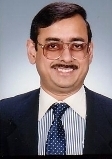
Biography:
Debasis Bagchi is the Chief Scientific Officer of Cepham Research Center, Piscataway, NJ and a Faculty in the Department of Pharmacological and Pharmaceutical Sciences at the University of Houston College of Pharmacy, Houston, TX. He served as the SVP of R&D of InterHealth Nutraceuticals, Benicia, CA, from 1998 to 2011 and then as Director of Innovation and Clinical Affairs of Iovate Health Sciences, Oakville, ON, till June 2013. He has received the Master of American College of Nutrition Award in October 2010. He is the Past President of American College of Nutrition, Clearwater, FL. He has 309 peer reviewed publications, 27 books and 18 patents to his credit.
Abstract:
Dietary fiber rich fenugreek (Trigonella foenum-graecum) seeds have exhibited cardioprotective, hypolipidemic and other health benefits. In our laboratories, we have developed Furosap, an innovative, patent-pending 20% protodioscin-enriched extract from fenugreek seeds, which effectively increased testosterone levels, and significantly improved sperm profile, mental alertness, cardiovascular health, mood, libido and quality of life in male volunteers. Testosterone has also been demonstrated to attenuate lean body mass and stronger bones. Institutional Review Board (IRB) and other regulatory approvals were obtained for our study. This one-arm, open-labeled study was conducted in 50 male volunteers (age: 35 to 65 years) over a period of 12 weeks to determine the efficacy of Furosap (500 mg/day/subject). This study examined the testosterone levels, sperm profile, sperm morphology, libido and erectile dysfunction, mood and mental alertness and broad spectrum safety parameters. Free testosterone levels were improved up to 46% in 90% of the study population. 85.4% of the study population showed improvements in sperm counts. Sperm morphology improved in 14.6% of volunteers. Majority of the subjects enrolled in the study demonstrated improvements in mental alertness and mood. Furthermore, cardiovascular health and libido were significantly improved. Extensive safety parameters were evaluated which included blood chemistry data. No significant changes were observed in serum lipid function, cholesterol, triglyceride, HDL and LDL levels, hemogram (CBC), hepatotoxicity, cardiotoxicity and nephrotoxicity. Overall, the results demonstrate that Furosap, enriched in 20% protodioscin, is safe and effective in attenuating testosterone levels, healthy sperm profile, mental alertness, cardiovascular health and overall performance in human subjects.
Pınar Terzioglu
Mugla Sıtkı Kocman University, Turkey
Title: Influence of Baking and Extraction Methods on the Fatty Acids and Antioxidant Activity of the Poisonous Mushroom Tricholoma terreum from Turkey

Biography:
Sevil Yücel has received the PhD at Istanbul Technical University, Department of Chemical Engineering in 1991. She began working at Yildiz Technical University, Department of Bioengineering in 2006 as Assist. Prof. and worked at the same department with the title of Assoc. Prof. between 2009-2014 years. She is still working at Yildiz Technical University, Department of Bioengineering as professor till 2014. Sevil Yücel has many research papers published in SCI indexed journals and by the international indexed journals, book chapters and international meetings
Abstract:
Mushrooms have long been part of the human nutrition. In recent years, mushrooms have attracted much research attention due to being important natural resources of bioactive compounds, antibacterial, antioxidant, and anticancer agents. Tricholoma terreum (Schaeff.) P.Kumm. is an edible mushroom growing in many districts of Europe; however, the fruiting bodies of this wild mushroom was suspected as toxic and should be consumed after cooked [1]. In the present study, T. terreum were collected from MuÄŸla, Turkey. The influence of baking on the fatty acid profile and antioxidant activity of the extracts of T. terreum obtained by traditional, Soxhlet and ultrasonic assisted extraction technique was investigated. The fatty acid profile and antioxidant properties based on free radical scavenging activity was studied using GC-MS and spectrophotometer, respectively. The fatty acid content and radical scavenning activity of mushroom extracts were varied by using on the bases of different solvent extractions and several extraction techniques. The linoleic and palmitic acid found to be the main fatty acids in baked samples while linoleic, linolenic and oleic acid in unbaked ones. When mushroom was baked, palmitic acid and linoleic acid percentages of all extracts increased, whilst linolenic acid decreased. Among the all extracts, the water extract of unbaked and baked mushroom obtained by Soxhlet extraction was found to be the most active on DPPH• assay. It was observed that the baked mushroom extracts exhibited less activity than those of raw extracts
Uygar H Tazebay
Gebze Technical University, Turkey
Title: Regulation of iodide secretion to milk by the mammary gland expressed Na+/I-Symporter (NIS)
Biography:
Uygar H Tazebay is a Professor of Molecular Genetics at the Gebze Technical University, Gebze, Turkey. He has received his PhD degree in 1998 from Paris University. He carried out his Postdoctoral studies as a Research Associate at the Albert Einstein College of Medicine, New York, on identification of the mammary gland iodide transporter and characterization of molecular pathways regulating iodide secretion to mothers’ milk. Later he has obtained a PI position at Bilkent University and then he moved to Gebze Technical University, Kocaeli where he continues his research and teaching activities. He is the Founding President (2011-2014) of the Turkish Molecular Biology Association
Abstract:
Activity of the sodium/iodide symporter (NIS) in lactating breast is essential for iodide (I-) accumulation in milk. This is an essential activity for the proper development of the suckling newborn, as I- in milk is the baby’s only source for thyroid hormone synthesis. Independent of lactation, significant NIS up-regulation was also reported in breast cancer, indicating a potential use of radioiodide treatment. All trans-retinoic acid (tRA) is a potent ligand that enhances NIS expression in a subset of breast cancer cell lines and in experimental breast cancer models. Aiming to uncover genetic elements directly regulating NIS expression, we screened evolutionary conserved non coding genomic sequences for responsiveness to tRA in mammary epithelial model cell lines. Here, we report that a potent enhancer in the first intron of NIS mediates direct regulation by tRA stimulated nuclear receptors. In vitro as well as in vivo DNA-protein interaction assays revealed direct association between retinoic acid receptor-a (RARa) and retinoid-X-receptor (RXR) with this enhancer. Moreover, using ChIP we uncovered early events of NIS transcription in response to tRA, which require the interaction of several novel intronic tRA responsive elements. These findings indicate a complex interplay between nuclear receptors, RNA Pol-II and multiple intronic RAREs in NIS gene and they establish a novel mechanistic model for tRA induced gene transcription
Lara Hanna Wakim
Holy Spirit University of Kaslik, Lebanon
Title: Microbial Safety of Chicken Broiler Products in Keserwan Region in Lebanon

Biography:
Lara Hanna Wakim is the Dean of the Faculty of Agricultural and Food Sciences at the Holy Spirit University of Kaslik, Lebanon. She is the Vice-President of the Global Confederation of Higher Education Associations for Agricultural and Life Sciences-2015 and Member of its Steering Committee. She served as Head of Food Science Department at USEK and as Responsible of the International Relations. She has an extensive experience as Food Safety consultant. She is Member of the National Committee of Agri-Food Industries at the Lebanese Ministry of Agriculture, an Active Member at the Lebanese Standards Institution at the Lebanese Ministry of Industry, Member of the Lebanese Association of Food Scientists and Technologists and also Member of the Governing Council of the International Union of Food Science and Technology Her research interests are primarily focused on consumer perceptions and attitude toward food safety in Lebanon. She holds an Agricultural Engineering Diploma from USEK (Lebanon), an MS in Food Science from the Agence Universitaire de la Francophonie (AUF)/INAP-G (France) and a PhD in Food Process Engineering from AgroParis Tech (France). She holds as well an MA/PG Diploma in Learning and Teaching in Higher Education from University of Chester (UK)
Abstract:
In 2016, the annual production of broiler chicken in Lebanon is estimated around 70 million tons. To reach this production, the use of antimicrobials in broiler farming is widespread in Lebanon. The abusive usage of antimicrobials has led to the emergence of antibiotic resistant bacteria which can be found in raw food. The objective of this study focuses on microbiological analysis which consist essentially in particularly isolated bacterial pathogens Salmonella and Escherichia coli (E. coli), and this in broilers taken from the supermarket of the Caza of Keserwan over a period a month divided into four parts; weekly. Knowing that the sampling was made of the three most popular brands in the four largest supermarkets in the area. The results showed that our samples are contaminated and 100% non-compliant comparing to the standards of the Lebanese Standards Institute (LIBNOR). The LIBNOR standards require non-presence of Salmonella and E. coli on raw chicken meat. These high levels of contamination show that security measures are not applied throughout the chicken meat processing line and a deficit in continuity assurance food safety remains clearly remarkable
Navarro Meza Monica
University of Guadalajara, Mexico
Title: Eating Behaviour and Biochemical Serum Indicators In Adults With Type 2 Mellitus Diabetes That Habitat In Rural Areas Of Jalisco, Mexico

Biography:
Monica Navarro Meza is a Graduate in Biology the University of Guadalajara, Master of Science from the Institute of Neurobiology, UNAM and Post-doctorate in endocrinology Intakes by the University of Oviedo, Spain. Her research interests include chronic degenerative diseases, genotoxicity and food, Neuronutricion, Food Immunology and Genetics of chronic degenerative diseases.
Abstract:
Introduction: Eating behaviour in Type 2 Diabetes Mellitus (T2DM) related to development and progression of complications. Objective was to evaluate biochemical serum indicators and eating habits. Method: A cross-sectional observational study of 34 adults (18-60 years), applied an eating behaviour instrument and evaluates biochemical serum indicators. Frequencies distribution and co-variance analysis with adjustment variables used. Results: The 18% reported normal weight, 44% overweight, 38% obesity. Levels glucose was related to avoid any foods dislike (p=0.037); cholesterol was associated with dislike of fish and seafood (p=0.046); not usually including dessert in main meal (p=0.04); sweeten fruit (p=0.028) and including non-sweeten fruit (p=0.002). Low-density lipoproteins were related to election food according to nutritional values (p=0.025), like to almonds, nuts, pistachios, and seeds were related to high-density lipoproteins. Triglycerides were associated to choose food because it´s visually pleasing (p=0.005), not reading nutritional (p=0.028), drinking portion major of fresh water in day (p=0.014), including soup or other entry in main meal (p=0.026) besides, tortilla, bread or tostadas (p=0.013). Insulin, was related with reading and understanding food’s nutritional labels (p=0.037); another person making meals (p=0.01), chewing frequently each bite more 25 times (p=0.006), liking fruits (p=0.002), vegetables (p=0.009), beans, lenses, chickpeas (p=0.039), egg (p=0.045). Interleukin 6 were associated with another person making meals (p=0.01), chewing each bite more 25 times (p=0.006), disliking fruits (p=0.012), not include fruit in main meal (p=0.006). Antioxidant capacity was related to liking almonds, nuts, seeds, pistachios (p=0.001). Conclusions: Eating behaviours could relate in protection or negative effect during T2DM progression.
Ademola Monsur Hammed
International Islamic University Malaysia, Malaysia
Title: A conceptual computer aided food choice for healthy living
Biography:
Ademola Monsur Hammed has completed his PhD from International Islamic University Malaysia and International Research Fellow as Postdoctoral experience from North Dakota State University. He is an Assistant Professor at International Institute of Halal Research and Training, IIUM. He has published more than 12 papers in reputed journals
Abstract:
Nutrition related diseases that have been responsible for several deformity and death of individuals, high cost of healthcare services, economic loss and low productivity. Current approached guiding individual decision on quantity and quality of food consumed is mostly based on sensory evaluations. This approach is subjectively biased and lack scientific merit, therefore, not efficient. Efficient food intake to achieve individual balance diet is a way out to eradicated nutritional mismanagement and thus nutrition related diseases. Designing of balance diet for individual will require adequate information about the individual body index, inherent metabolic rate, medical history, daily activities, socio-economic status, weather condition, religious beliefs and culture. All these information are either unavailable and/or not considered when deciding what to eat. Food choice has been designated as a complex decision making process and that there is no single theory or model that can fully describe it. Optimal nutrition for healthy living can be achieved through expansion of the cognitive food choice processes among individual. Nutrition professionals engage in several trainings and awareness program to enlighten the people on the healthy eating tips. However, the outreach of this conventional approach is still low, expensive and most often late (after damage has been done) making it curative rather than being preventive. Efficient healthy eating (most especially food choice) can be achieved at individual level by utilization of computer aided system for food choice decision based on IOT technology. This system will not only provide timely information delivery but also bridge gap between nutritionists and people
Hanan Hagar
King Khalid University Hospital, Saudi Arabia
Title: Trimethylglycine accentuates cisplatin-induced hepatotoxicity by suppressing oxidative stress and inflammation and down-regulation of nuclear factor kappa and caspase-3 in rats Hanan Hagar

Biography:
Abstract:
Objectives: the aim is to investigate the effect of trimethylglycine supplementation on cisplatin-induced hepatotoxicity. Methods: animals were allocated into four groups; normal control group, cisplatin group, trimethylglycine + cisplatin group and control trimethylglycine group. Cisplatin was injected as a single intraperitoneal injection at a dose of (7 mg/kg). Trimethylglycine was given orally via gavage at a dose of (250 mg/kg/day) for 21 days prior to cisplatin injection. Results: cisplatin deteriorated the liver functions as reflected by elevated aminotransferases (ALT& AST) levels. Oxidative stress was evident in cisplatin group by increased hepatic thiobarbituric acid-reactive substances (TBARS) while reduced hepatic total antioxidant status. Cisplatin resulted in a decline in the concentrations of reduced glutathione, glutathione peroxidase, catalase and superoxide dismutase in hepatic tissues. Tumor necrosis factor-α (TNF- α) was elevated in hepatic tissues of cisplatin-treated animals. Nuclear factor–kappa B (NF-κB) and caspase-3 were up-regulated in hepatic tissues as indicated by immunohistochemical analysis. Hisopathological changes were observed in cisplatin group. Trimethylglycine supplementation was able to protect against deterioration in liver function, abrogate the decline in antioxidants enzymes and suppressed the increase in TBARS and TNF-α concentrations. Moreover, trimethylglycine inhibited NF-κB and caspase-3 activation and improved the histological changes induced by cisplatin. Conclusions: trimethylglycine can protect against cisplatin-induced hepatic injury by attenuating the pro-inflammatory and apoptotic mediators and improving antioxidant competence in hepatic tissues of cisplatin treated rats.
Thozama Mandindi
Walter Sisulu University, South Africa
Title: Improving food security in South Africa through nutrition education for learner lunchboxes
Biography:
Thozama Mandindi has completed her PhD in 2013 from the University of Fort Hare. Her teaching and research interests involve working with Indigenous communities especially on health issues relating to indigenous edible vegetables and herbs and how their views (IKS) can inform nutrition education and food product development as well as how the university and indigenous communities can pollinate each other in terms of sharing information and collaboration in issues of poverty alleviation. She has published in reputed journals and has been serving as an Editorial Board Member of reputed Journals
Abstract:
The nutrition transition from traditional staple diets and indigenous edible plants, including fruits and vegetables to commercial exotic food sources has had a negative impact on the health of the rural children. Malnutrition and non-communicable lifestyle diseases are gradually on the rise particularly in the rural areas and this has been associated with the poor diets consumed. Indigenous edible plants and traditional staple grain foods have been rediscovered to have veritable sources of the essential nutrients. However, this knowledge and information about these foods has not been recognized by both the learners and the older folks in the ‘scholar nutrition program’ in the rural areas. This study evaluated the knowledge of and the inclusion of indigenous edible plants and traditional staple grain foods among the rural learners of the Amathole District Municipality (ADM) in South Africa. The study also examined the learners’ acceptance of these foods if known and if not the nutrition education necessary in order to promote health and nutrition security. Learners’ lunchboxes were assessed and SGB food preparers from seven schools in the ADM rural areas were purposely selected and were all assessed for knowledge of indigenous, traditional staple plant foods and protein foods easily available in the area. The adults seem to know the food plants but were not using them, while up to 95% of the learners did not know about and the health benefits of it. The results lead to the researcher drawing a nutrition education plan for the learners and a policy recommendation for inclusion of these foods in lunchboxes or school feeding programs to the Department of Education. It was evident that integration of this dietary and nutrition knowledge is essential. It could be permeated through the curriculum. This could culminate to improvement of nutritional status of learners and the greater rural communities’ and thus food security in the rural areas
Osama O Ibrahim
Bio Innovation LLC, USA
Title: Sweeteners in our diets and WHO’s guidance on free sugars uptake
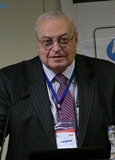
Biography:
Osama O Ibrahim is a highly-experienced Principal Research Scientist with particular expertise in the field of microbiology, molecular biology, food safety and bioprocessing for both pharmaceutical and food ingredients. He is knowledgeable in microbial screening, culture improvement; molecular biology and fermentation research for antibiotics, enzymes, therapeutic proteins, organic acids and food flavors; biochemistry for metabolic pathways and enzymes kinetics, enzymes immobilization, bioconversion, and analytical biochemistry. He was an External Research Liaison for Kraft Foods with Universities for research projects related to molecular biology and microbial screening and holds three bioprocessing patents and multiple publications. Upon his retirement from Kraft Foods he formed his own biotechnology company providing technical and marketing consultation for new startup biotechnology and food companies. He has received his BS in Biochemistry with honor and two MS degrees in Microbial Physiology/ Fermentation and in Applied Microbiology. He has received his PhD in Basic Medical Science (Microbiology, Immunology and Molecular biology) from New York Medical College. He is a Member of American Chemical Society, American Society of Microbiology and Society of Industrial Microbiology since 1979
Abstract:
Free sugars refer to monosaccharides such as (glucose, fructose) and disaccharides such as (sucrose, maltose) added to foods and drinks by manufacturer, cook or consumer and sugars naturally present in honey, syrups, fruit juices and fruit juice concentrates’. Reducing free sugars intake to less than 10% of total daily energy uptake was recommended by the WHO (World Health Organization) for the first time in 1989 and was further elaborated by a joint WHO/FAO (Food and Agriculture Organization) expert consultation. This new updated WHO guideline calls for further reduction of free sugars intake to less than 5% of total energy uptake if possible. This guideline is to halt the rise of diabetes and obesity and reduce the burden of premature death due to non-communicable disease (NDCs). It does not refer to sugars in fresh fruits and vegetables and sugars naturally present in milk, because there is no reported evidence of adverse effects of consuming these sugars
Aastha Grover
Shreemati Nathibai Thackersey University, India
Title: Processing and utilization of bamboo shoots to prepare value added food products
Biography:
Aastha Grover has completed her Master’s in Food and Nutrition from Delhi University in 2013. She has worked in Indraprastha Apollo Hospitals, New Delhi for more than a year and she started teaching in Delhi University. She is a Member of Indian Dietetic Association and Delhi Chapter. She is currently a PhD Scholar in Shreemati Nathibai Thackersey University, Mumbai, India and has been serving as a GOQii Lifestyle Coach promoting a positive and healthier lifestyle amongst the general population
Abstract:
Bamboo shoots (BS) being rich in antioxidants is edible fiber and a natural detoxifying agent. The aim of the present study were to incorporate whole BS as well as bamboo shoot powder (BSP) to improve the acceptability and marketability by substituting in preparation of whole food nutritional supplements. Various dehydration methods were performed such as Sun Drying, Hot Air Drying, Vacuum Drying (VD) and VD in combination with Osmotic Dehydration out of which VD turned out to be the most suitable drying method resulting in a better quality of BSP on the basis of physicochemical parameters. Biscuit and Dhokla were prepared by substituting flour with BSP using variations of 10% and 20%. Pickle was prepared with fresh BS as well as with osmotically dehydrated BS. The influence of BS on the quality of finished products was evaluated through sensory evaluation which inferred that in biscuits, due to the saltiness and dense nature of BSP, 10% can be substituted. However, in dhokla 20% variation was acceptable. The pickle prepared using osmotically dehydrated whole BS was more acceptable due to the sweetness after subjecting to osmotic dehydration. Consumer acceptability was highest for pickles followed by biscuits and dhokla. The pH of BS pickle was <4.6 which corresponds to the Codex Standard of Pickled Fruits and Vegetables making the product edible and fit for consumption. Therefore, whole BS and BSP can be incorporated in the diet in preparing acceptable food products
